Sip & Savor
Celebrated chefs, tempting tipples and far-flung farm stays


Celebrated chefs, tempting tipples and far-flung farm stays

Nick Svenson proudly supports Next Generation Scholars. The organization equips and empowers first-generation, under-resourced Marin County middle and high school students to succeed in college and beyond through socially conscious leadership development.

Grounded in individualized academic and social support for them and their families, our students are emboldened to address the inequities in the world, both for themselves and for their communities.
To support Next Generation Scholars, please contact us at www.nextgenerationscholars.org or 415.259.0900


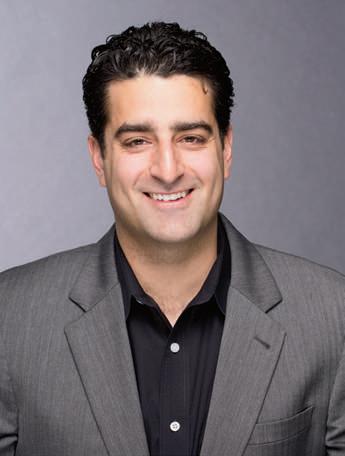
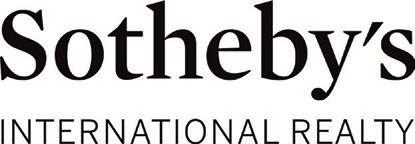

Don’t miss out — the final release of modern, solar-powered homes at Ascend at Hamilton Field is available now.
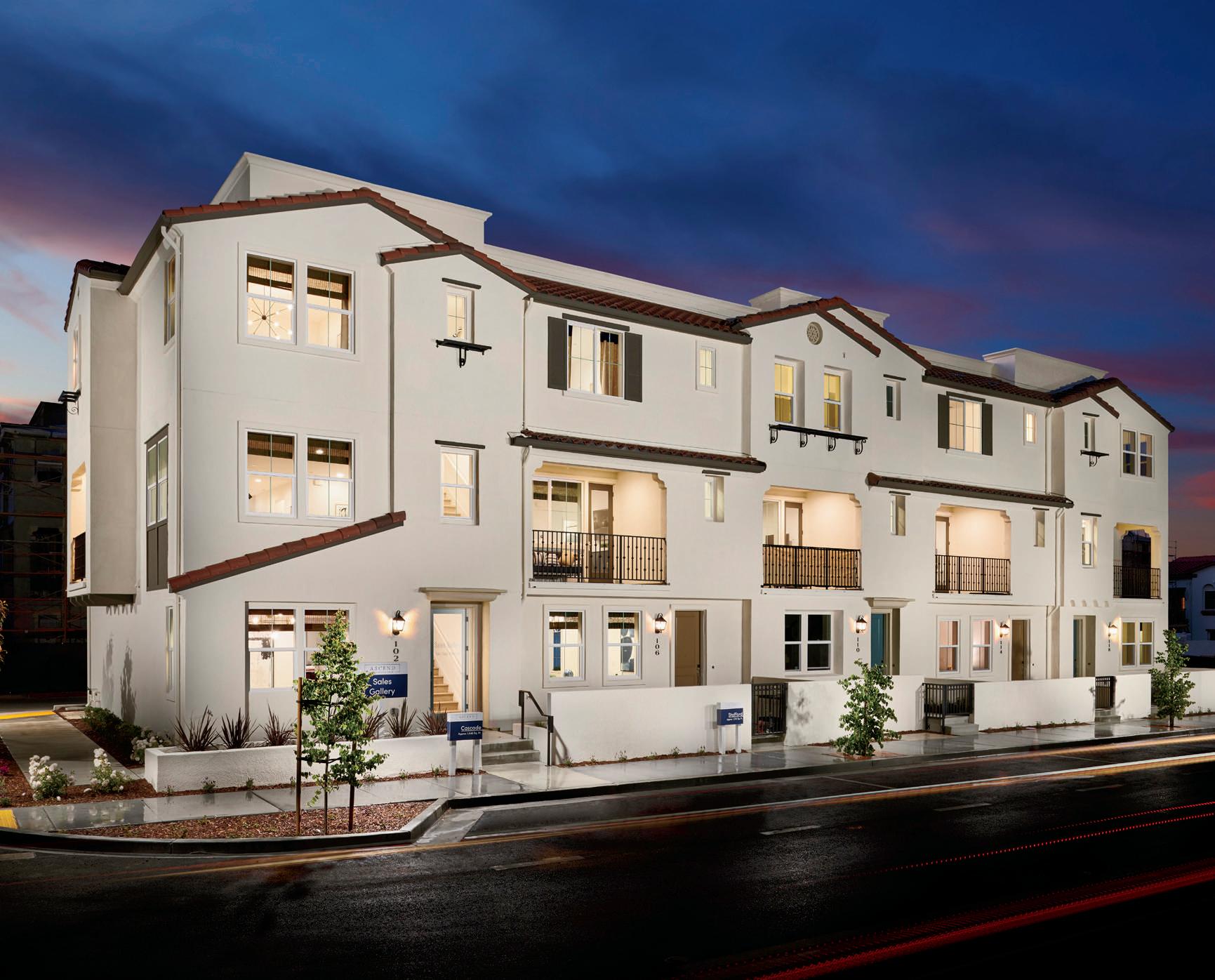
New owners have been jumping at the chance to leave the hustle and bustle of the city for the tranquility of Marin County and these modern, all-electric, Spanish–colonial style homes are the reason. Perfectly nestled in Novato’s historic Hamilton Field, the homes are surrounded by neighborhoods, parks and protected wetlands, all interconnected by a trail system.
And just outside their doors, residents will discover endless places to relax and recharge in the community garden, barbeque area, bocce ball courts and the AdventureScapes Climbing Play Area — Ascend truly gives you the space to entertain in style and comfort. Here, one will enjoy the town and country lifestyle without giving up convenient access to San Francisco, the East Bay and Wine Country.
But maybe the most attractive reason to make the move to Ascend is the technology and craftsmanship of the homes — all created by City Ventures, a new-home solar-power leader. Each of the threeor four-bedroom homes boasts decks and patios, all-electric, energy-efficient appliances, built-in solar power, smart thermostats and is preplumbed for easier access to install an EV charger in the attached two-car garages.
There has never been a better reason to discover all that Novato and Ascend at Hamilton Field have to offer. Schedule your tour of the community and contact Sales to prequalify for the last of these homes before they are gone.



1,338–1,875 Sq. Ft
3–4 Bedrooms | 2.5–3.5 Baths
Attached 2-Car Garages
From the mid-$800,000s
Ascend at Hamilton Field www.CityVenturesNovato.com
802 State Access Road, Novato, CA 94949
415.214.4689 | @NovatoNewHomes
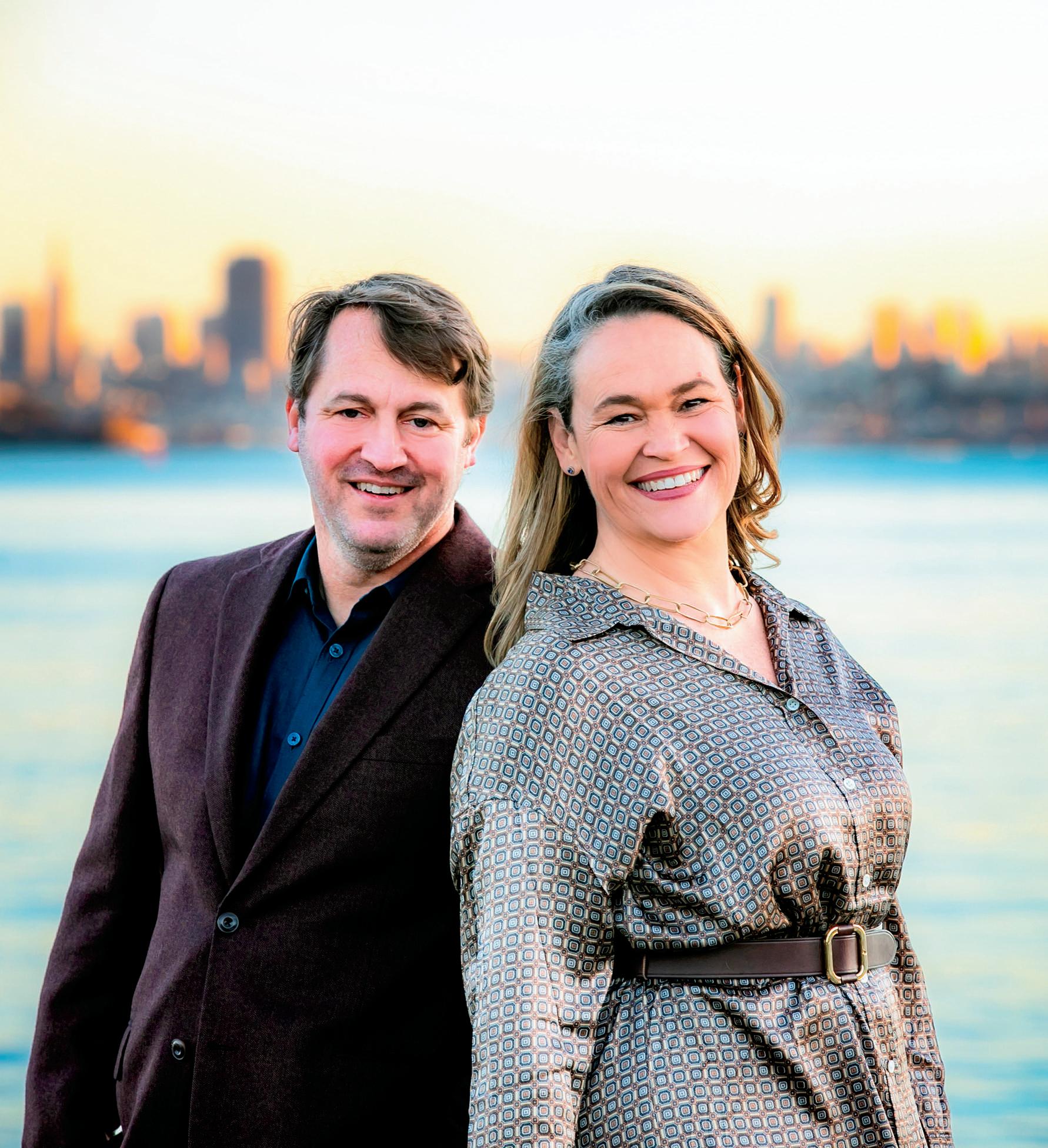

“ When the time finally came to make an offer they were there every step of the way remaining optimistic and supportive. Jennifer’s deep roots in Marin and in the real estate community gave us such confidence which was invaluable throughout the process. When we were waiting to hear back on an offer they even sent treats to help with the wait! Even after our offer was accepted and escrow was closed, they advised us and provided resources for work the house needed. It felt like a partnership from day one which continues on to today.”

- The Cafaro Family

The value of our business is measured in the quality of the relationships we build.

It wasn’t that he needed prayers as much as a daily reminder to slow his mind, appreciate his blessings and moments with his family. With children entering teenage years and Michael solidly embracing “mid-life,” a daily ritual could mark the mental transition between work and home. The prayer wheel would be tall and prominently located, where each evening he could spin the wheel and whisper a phrase that would remind him to downshift and enjoy the evening with his family.
Michael called longtime collaborator, Yorgen, at Artstruct, who was very enthusiastic. Their collaborations are what Michael calls, “Funktional Art,” and include abstract doors, minimalist fireplaces, organic tables, and now a prayer wheel. They’ve worked for Hollywood producers, venture capitalists, corporate offices, and residential clients With originality and spontaneity their collaborative installations infuse spirit and meaning in each built environment.
Yorgen inscribed the Sanskrit mantra, "Om mani padme hum," along with abstract graphics representing earth to spirit. While no simple phrase can convey it's full meaning or depth, one translation reminds us to "rejoice in loving kindness and compassion." Seems like the world could use a little more of that right now.
Michael Heacock Architects
Mill Valley Lumber Yard

129 Miller Avenue, Mill Valley CA 94941
mh@MichaelHeacock.com
415 845 5326
Yor gen Quent, Artstr uc t
P.O. Box 1432 Mendocino, CA 95460
info@Artstruct.com
www.Artstruct.com
707.813.0505
With the radiant southern shore of O‘ahu as a backdrop, the residences of Kalae are thoroughly modern homes designed and built for gracious island living.

One, Two, and Three Bedroom Residences
INQUIRE welcometokalaewv.com | 808 376 1890
Offered by Ward Village Properties, LLC RB-21701
THIS IS NOT INTENDED TO BE AN OFFERING OR SOLICITATION OF SALE IN ANY JURISDICTION WHERE THE PROJECT IS NOT REGISTERED IN ACCORDANCE WITH APPLICABLE LAW OR WHERE SUCH OFFERING OR SOLICITATION WOULD OTHERWISE BE PROHIBITED BY LAW. WARD VILLAGE, A MASTER PLANNED DEVELOPMENT IN HONOLULU, HAWAII, IS STILL BEING CONSTRUCTED. ANY VISUAL REPRESENTATIONS OF WARD VILLAGE OR THE CONDOMINIUM PROJECTS THEREIN, INCLUDING THEIR LOCATION, UNITS, COMMON ELEMENTS AND AMENITIES, MAY NOT ACCURATELY PORTRAY THE MASTER PLANNED DEVELOPMENT OR ITS CONDOMINIUM PROJECTS. ALL VISUAL DEPICTIONS AND DESCRIPTIONS IN THIS ADVERTISEMENT ARE FOR ILLUSTRATIVE PURPOSES ONLY. THE DEVELOPER MAKES NO GUARANTEE, REPRESENTATION OR WARRANTY WHATSOEVER THAT THE DEVELOPMENTS, FACILITIES OR IMPROVEMENTS OR FURNISHINGS AND APPLIANCES DEPICTED WILL ULTIMATELY APPEAR AS SHOWN OR EVEN BE INCLUDED AS A PART OF WARD VILLAGE OR ANY CONDOMINIUM PROJECT THEREIN. WARD VILLAGE PROPERTIES, LLC, RB-21701. COPYRIGHT ©2023. EQUAL HOUSING OPPORTUNITY.
WARNING: THE CALIFORNIA BOARD OF REAL ESTATE HAS NOT INSPECTED, EXAMINED OR QUALIFIED THIS OFFERING.
 KALAE RESIDENCE 00 LIVING ROOM
KALAE RESIDENCE 00 LIVING ROOM

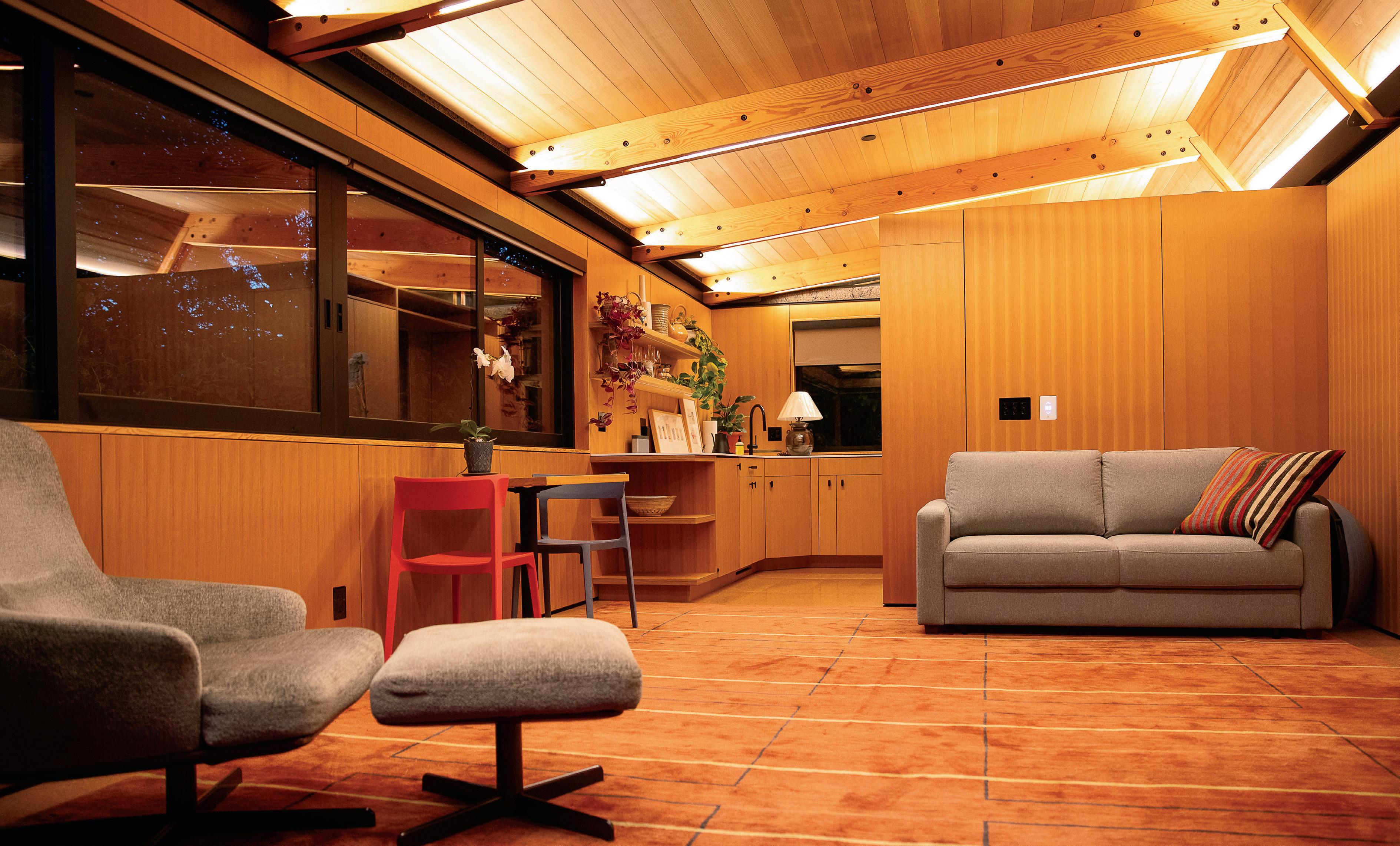

Jessica Cline
CEO
jessica@marinlivingmagazine.com
707.302.0850
Dina Grant Advertising Director dina@marinlivingmagazine.com
707.238.2030
Casey Gillespie
Creative Director
casey@marinlivingmagazine.com
Daniel Jewett
Executive Editor
dan@marinlivingmagazine.com
ADVERTISING
Wine Country Advertising Consultant Chet Klingensmith chet@marinlivingmagazine.com
707.216.1780
Hawaii Region Advertising Consultant Meredith Low meredith@marinlivingmagazine.com
808.388.2644
Advertising Consultant
Kim McGinnis kim@marinlivingmagazine.com
415.640.4504
Advertising Consultant
Carrie Moler carrie@marinlivingmagazine.com
415.271.3080
Advertising Consultant Courtney Roberts courtney@marinlivingmagazine.com
415.720.3752
Subscriptions Customer Service
818.287.2940 mlmcs@magserv.com
To subscribe, manage your subscription or change your address: marinlivingmagazine.com/subscriptions
EDITORIAL
Associate Editor
Caitlin Hamer
Contributing Designers
Roberto Avalos, Jamie Bankston, Madeleine Hannes, David Sebo
Contributing Writers
Christina Cavallaro, Casey HatfieldChiotti, Annie Geiser, Joseph Knelman, Amber Turpin
Copy Editor Cynthia Rubin
Client Services Manager
Lauren Winsett lauren@marinlivingmagazine.com
415.300.0908
Mailing Address Marin Living PO Box 2104 Mill Valley, CA 94941
Office phone: 707.302.0850
Editorial or Press Inquiries casey@marinlivingmagazine.com, dan@marinlivingmagazine.com
To sign up for our newsletter: marinlivingmagazine.com/newsletter
Marin Living magazine is delivered complimentary to residents of California.
www.five19brandstudio.com
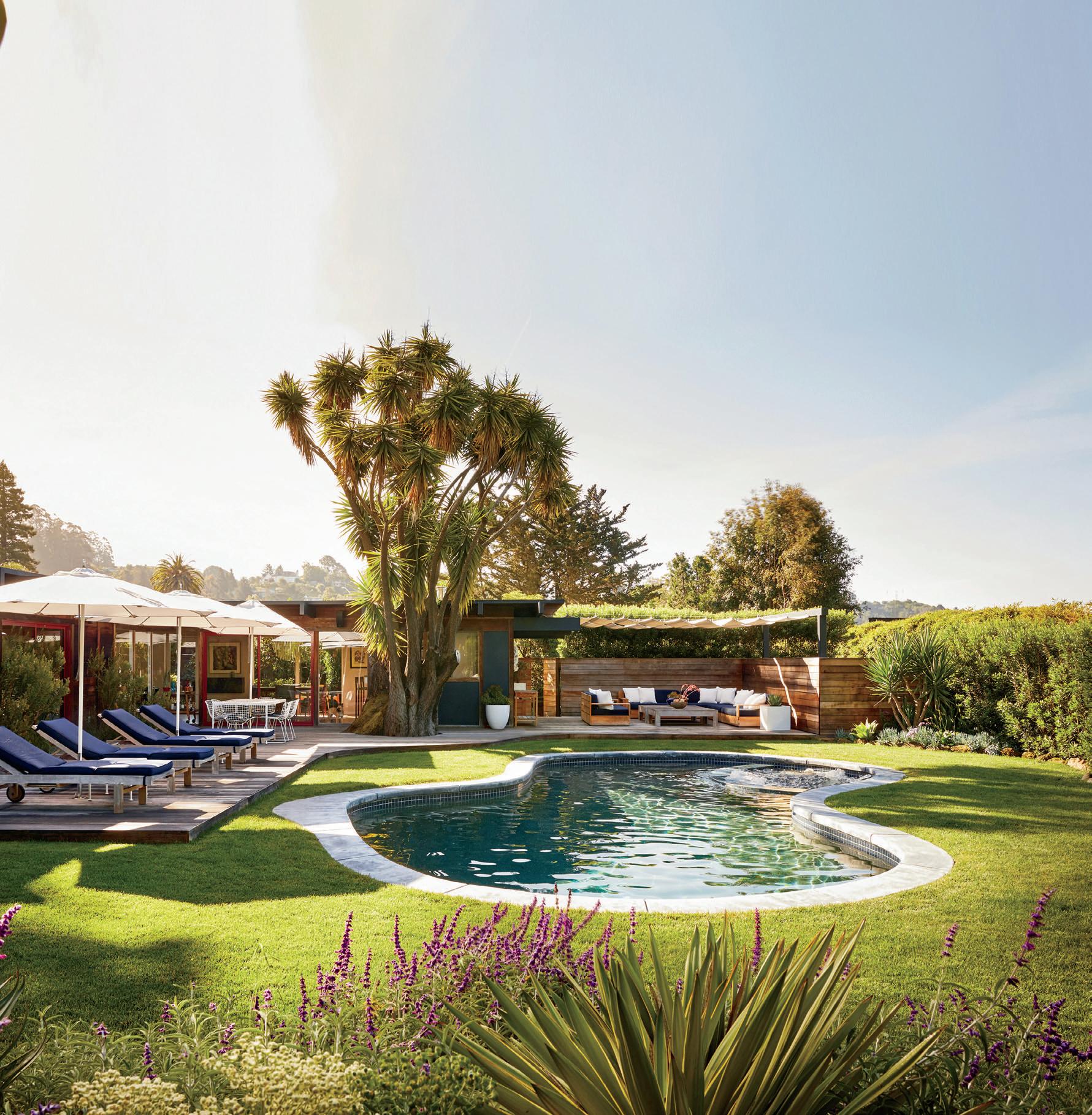


march 2023
spotlight marin.
22 news. The California Artisan Cheese Festival returns, Marin Ballet at 60, Women in Wine Day and more.
32 local splurges.
Nonalcoholic drinks have come a long way — here’s what we are sipping on.

34 eat & drink.
Centuries-old wine farming practices see a blissful resurgence.
36 local getaways. Must-visits in one of San Francisco’s fastest-growing neighborhoods — Dogpatch.
40 take note. A new book is your guide to culinary treats in Sonoma County.


42 game changers. Bringing the next generation of food products to your pantry.
78 land & sea.
Conservation lessons from Marin delivered at the United Nations’ COP15.
80 new digs.
A local fermentation brand moves into a new — and familiar — spot in Point Reyes Station.
82 voyager. Next-level farm stays offer unforgettable meals and experiences.
88 drawn together.
Who’s behind those delicious, healthy and local lunches in Marin schools?
from the team.
18 from the ceo.
20 from the creative director.
How can I become a better texter when communicating with new matches?

Texting with new matches should lead to conversations and dates, not endless texts. If you want to become a strategic texter, follow these easy tips: don’t give out your phone number in the first text, personalize your opening message based on the other person’s profile, balance the length of your exchanges with theirs, offer to chat after a few texts, exchange phone numbers, and schedule a convenient time to talk.
What’s the key to planning a fun first date?

The key to planning a fun first date is the planning itself. You should’ve already spoken to each other on the phone before your date, so if you’re the one planning your first outing, you should have a general idea about what the other person likes. Most important is to pick a location that’s easy for your date to get to, in a public place, and make it a relatively short activity.
Spring is about renewal and putting the past behind you. It’s about enjoying what’s in front of you right now, which is budding flowers, warm weather and the opportunity to get outside to meet someone new — a friend, a companion, a love interest. Here are some helpful tips.
How can you set the stage for a good first date?

Make a physical and mental change before a date to set the mood. Start by dressing for the venue. Not too fancy, not too casual. Switch from day to date mode, even if the date is during the day. Women can switch their lipstick shade and shoes and put their hair down. Guys can remove their tie, get out of their suit, or change their shirt if short on time.
What should you do if there’s no chemistry on a first date?
Think about every first date as a job interview. Even if there’s no chemistry, the person you just met can lead you to someone you do have chemistry with, maybe your future love. So make a good first impression, be generous with your time and attention by showing your date you value theirs, and stay open to new connections because they can come from where you least expect them.
The community of women winemakers in North County is growing stronger by the minute.
The next generation of a family with deep roots in Napa Valley casts its eyes over the hill.
The fun, inspiring, unique and absolutely delicious restaurants we’ll be dining at in 2023.

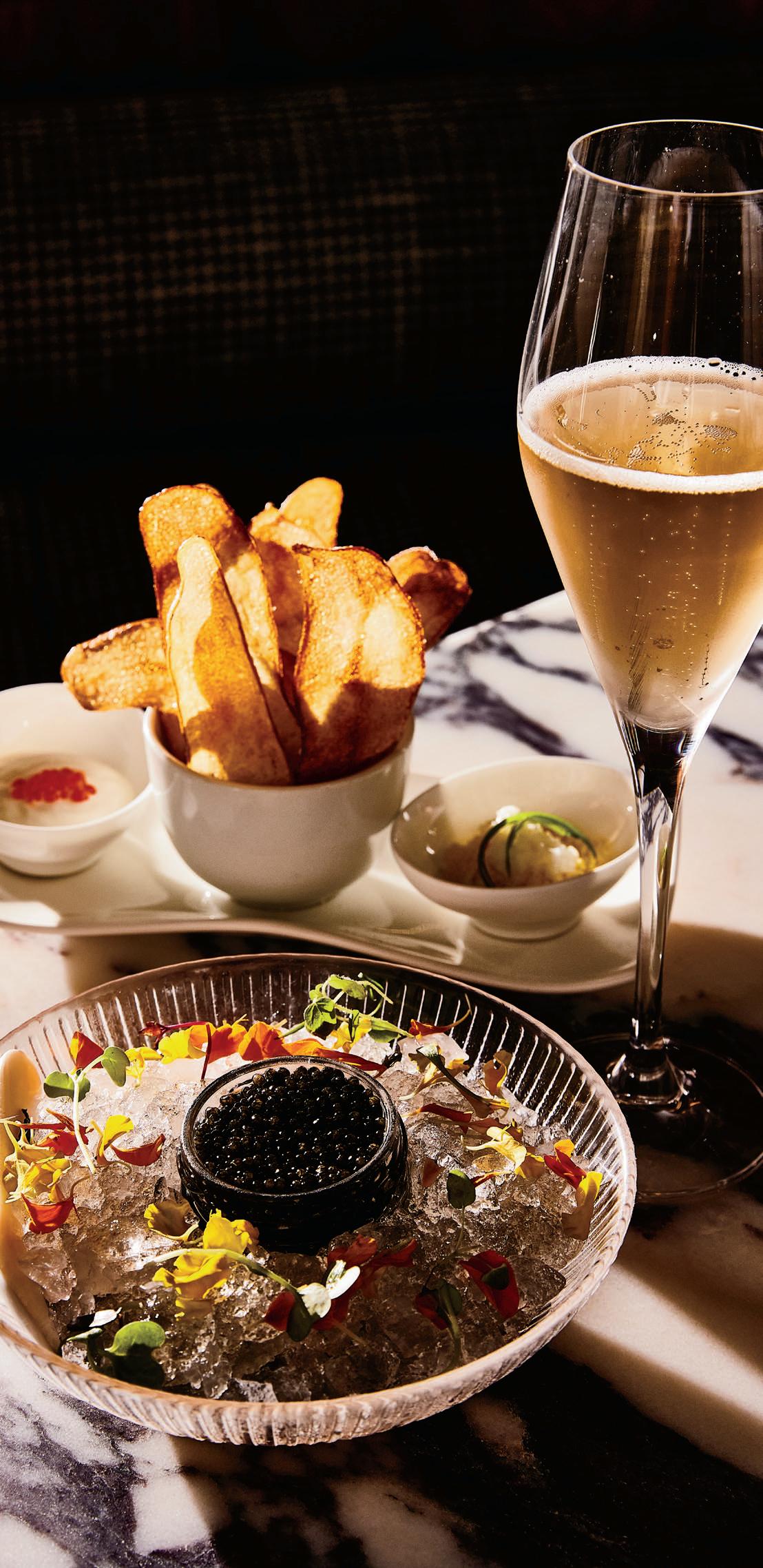
Mouthwatering hamachi crudo at Cavallo Point’s Sula restaurant;
Aubrie Pick photo by Aubrie Pick

I’M ONE OF THE RARE PEOPLE WHO LOVES THE RAIN, and not just because it’s a remedy for the drought we are in, but it’s moody and life slows down just a little bit. In just a few weeks the bounty of all this rain will be another much-anticipated super bloom. When I moved to Marin several years ago, we were experiencing a rather verdant spring — I’ll never forget driving north on the 101 and seeing the vibrant flowers and rolling hills covered in the most beautiful shade of green. It solidified my love of our environment. This March, I’ll be out searching for the most spectacular view; please let me know if you have a favorite place. I can hardly wait.
In this issue, we explore all things food and drink, and yes, it’s my favorite issue of the year. We delve into not just restaurants and wineries but the stories of people doing extraordinary things, like female winemakers (page 44) and Dee Coleman, who makes healthy and nutritious lunches for Marin’s kids (page 88). Marin is packed with organic farm-fresh food and it’s one of the many reasons I love calling it home.
Speaking of home, at five19 publishing we are working hard cultivating our life-first culture and loving every minute of it. Our work-from-home philosophy allows us to go for a walk in the middle of the day, care for our loved ones and not stress about the annoying things that come along with commuting —
all while working more efficiently. Our team’s opinions matter and the trust we’ve developed with each other is something that is very important to each of us. The flexibility of working this way lets us travel as much as possible — we encourage it and have developed a “we can work anywhere” policy that we all treasure. We have found that our approach creates happy people and happy people provide terrific client service and loyalty to each other.
If you see us out at dinner together, you’ll be hard-pressed to know we are workmates — it’s a group who are truly happy being together. I am proud to report that our great experiment is working magnificently.
 Jessica Cline, CEO and Co-Founder
Jessica Cline, CEO and Co-Founder




from the creative director.
WELCOME TO OUR SIP & SAVOR ISSUE
It’s spring, tons of food and wine festivals are just around the corner, warmer weather is upon us and did someone say super bloom? So much to look forward to! But let’s dive right into the crux of this issue: food, wine and more food and wine.

There is a reason that the Bay Area is known for its restaurants, farms and vineyards — and I’m not just talking about the Michelin-starred eateries and internationally recognized wines. The beauty of our food scene lies in everything from the locally grown fruit and vegetables to the small producers and artisans at the farmers markets, to the innovative options for vegans and those with food allergies, to the sustainable (as well as organic and biodynamic) farming practices. Buying Dungeness crab right off the boat and visiting a local creamery to pick up cheese are not things many people get to do. And it is one of the reasons we live in Marin, am I right?
When friends and family come to visit, they are always in awe of the number of farmers markets we have at our fingertips (and the awesomeness of the spread at the Civic Center on Sundays). A jaunt to Tomales Bay for oysters is always a crowd-pleaser, too. Or a day trip to Wine Country for a tasting or two and lunch at one of our favorite restaurants (or roadside delis). I could go on and on, but you see my point — we are very lucky and possibly even a wee bit spoiled (OK, very, very spoiled).
In this issue you’ll find our picks of places where we’ll be eating this year — some newly opened, some tried-andtrue favorites, all delicious. We also meet a handful of the talented female winemakers making waves in Napa and Sonoma. And we spoke to the Wagners — the family behind the Caymus wine empire — about their newest outpost, the less touristy Wine Country destination locals will be flocking to this spring and summer. And if you are searching for a summer vacation destination, then you won’t want to miss our feature on next-level farm stays. These spots are giving new meaning to the phrase “farm-to-table.”
I would love to hear about your favorite eateries and which wineries are on your must-visit list this year. Feel free to drop me an email or DM me on Instagram. Until then, cheers!
Casey Gillespie Creative Director and Co-Founder

The California Artisan Cheese Festival is back — mark your calendars: March 24 to 26
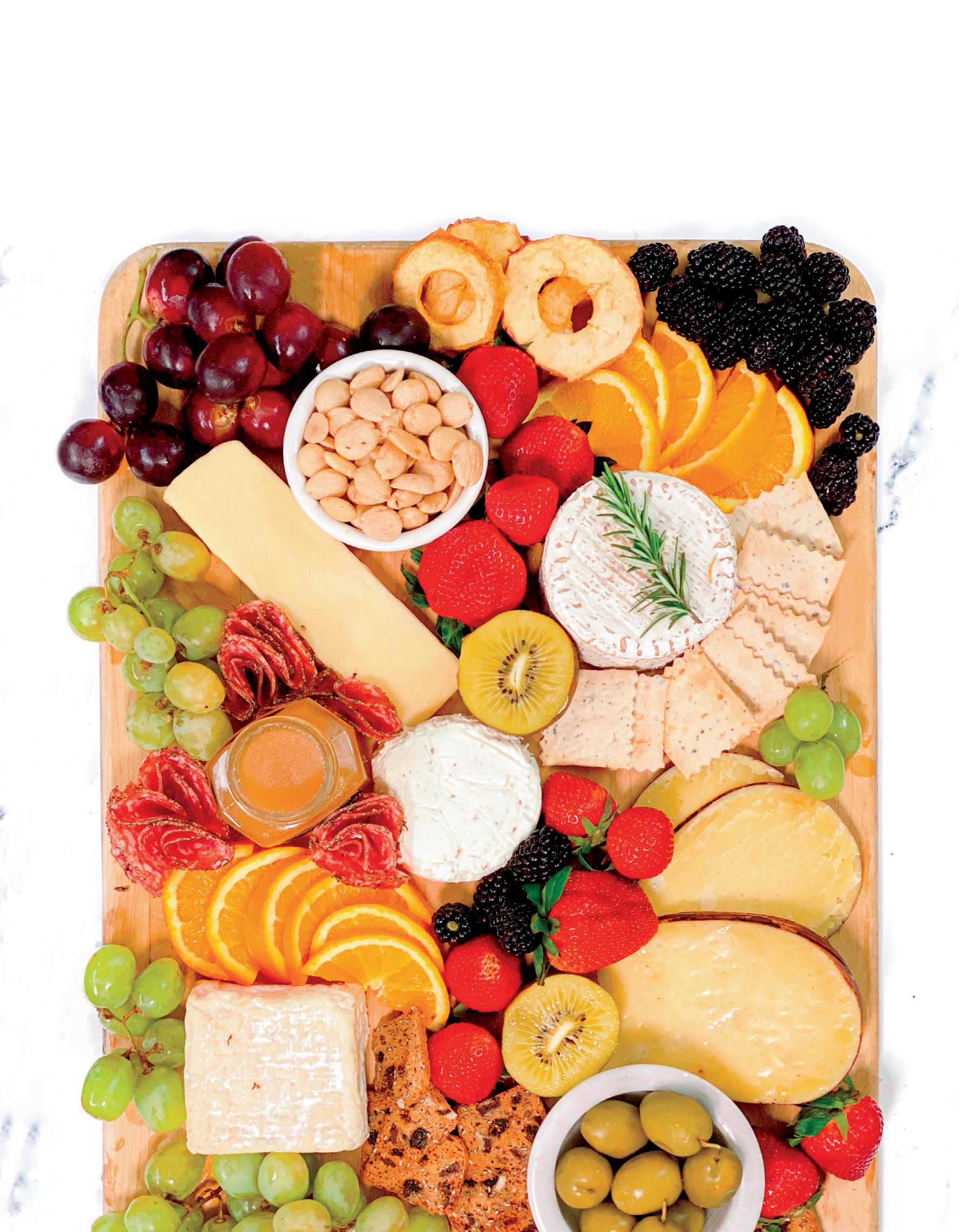 Michelle Chou
Michelle Chou








The California Artisan Cheese Festival (www.artisancheese festival.com) returns March 24 to 26. The weekend kicks off on Friday with several different Northern California producer and farm tours to choose from. On Saturday, make your way through seminars and pairing demos at various wineries in Santa Rosa and Windsor, then head to The Barlow in Sebastopol for a cheese crawl later in the day. Finally, check out the Artisan Cheese Tasting and Marketplace at the Sonoma County Fairgrounds on Sunday afternoon.

Marin County residents in single-family homes have a good opportunity to replace their gas-powered cooking appliances with electric induction options. Bay Area Regional Energy Network Home+ (www. bayren.org) is offering a rebate to PG&E natural gas customers making the switch while Electrify Marin’s rebate program is open to both natural gas and propane customers.

Celebrate two of our favorite things — women and wine — at National Women in Wine Day (www.womeninwineday. com) on March 25. Founded by Renae Perry and Yolanda Papapietro, co-owners and founders of Papapietro Perry Winery, this annual online celebration is inspired by International Women’s History Month. The social initiative launched in 2021 to highlight the stories of women in the wine industry and provide resources for those hoping to enter the industry themselves. The website features more than 100 women from all aspects of the wine industry, as well as scholarships to apply for, organizations to support and a place to submit honoree nominees.

Howard Kornfeld, M.D., is the founder of Recovery Without Walls and a board-certified pain specialist with long-standing experience in the use of the unique analgesic buprenorphine, a medication that has been consistently underutilized and misunderstood by many clinicians and patients.

Dr. Kornfeld, an experienced emergency physician prior to becoming board certified in both pain and addiction medicine, has taught as a clinical faculty member in the pain fellowship program at UCSF over the last 20 years. He is also a Distinguished Fellow of the American Society of Addiction Medicine.
Dr. Kornfeld was an early adopter of buprenorphine for the management of severe pain in the United States
and his published innovations have received wide recognition and support. Most often used to replace other types of, often ineffective, opioid medications that carry higher risks, in low dose forms, and with proper consultation, buprenorphine can be appropriately provided to a wide range of patients suffering from chronic pain, including the elderly, and become a quality-of-life-restoring treatment strategy.
Communities in Marin County are set to receive millions in state funding for transportation projects, which include new bike and pedestrian paths, bike lanes, traffic congestion relief, transit improvements and housing planning near transit hubs.

8 Number of projects in San Rafael, Corte Madera and other areas of the county
$10.2 million
State grant approved by the Metropolitan Transportation Commission
$9.5 million
Additional dollars recommended that the California Transportation Commission approve for further projects
$4.6 million
Grant funding received for San Rafael
$8 million
Recommended funding for the San Rafael Canal area
$1.6 million
Set to be used to start a study on potential housing development in San Rafael
$1 million
Awarded to SMART for a bicycle and pedestrian path in Novato

$505,000
Grant awarded to Sausalito to add a bicycle lane on Bridgeway
$1.5 million
Recommended for Corte Madera to complete a separated bicycle lane on Nellen Avenue
$2 million
Grant funding for Corte Madera to build a multimodal path on Paradise Drive
$1.6 million
Allocated to Marin Transit to upgrade bus stops on high-use corridors
$400,000
Grant funding for the Transportation Authority of Marin
Fatal overdoses and drug poisonings have doubled in the past three years in Marin County, a trend driven by the increased distribution of fentanyl, but health authorities are particularly concerned about the deaths occurring among teens. Using proven tactics from the RxSafe Marin coalition, organizers of OD Free Marin (www.odfreemarin.org) have formed action teams to approach the crisis with a goal of reducing drug overdoses, focusing especially on fentanyl, in 2023. OD Free Marin is working to educate Marin communities, distributing the overdose treatment drug Narcan and helping individuals suffering from substance abuse disorders access treatment options. “New very potent opioids are flooding the illicit market, and we’re seeing more overdoses in every community in Marin,” says Dr. Matt Willis, Marin County Public Health Officer. “It’s time to take action together.”
Since the covid era, problem drinking has continued to increase. As this year takes shape, you could end your reliance on alcohol with advanced techniques and evidenced-informed, cutting-edge medications that our team has introduced years ahead of other practices.
The phrase “recovery without walls” describes a treatment philosophy unencumbered by the limits of reductionist thinking and the less frequent need for the walls of a residential center. We treat patients privately in our office with empathy and meticulous confidentiality, while placing a focus on psychotherapy, mindfulness, sleep
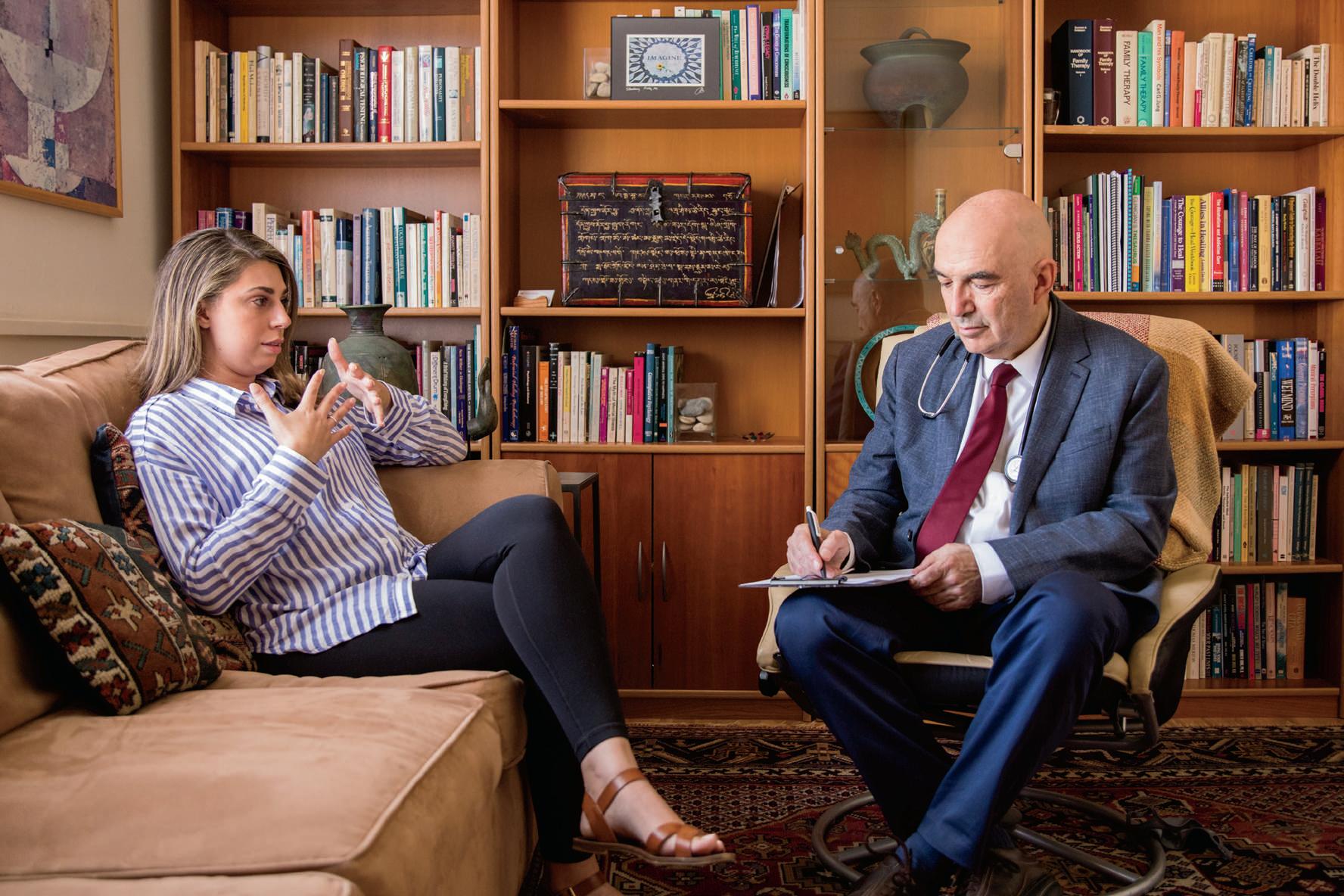
restoration, and exercise, including noninflammatory dietary and supplement choices. You can regain control and reduce the physical and emotional distress associated with withdrawal. We can seamlessly transition patients to residential care when needed.
Dr. Kornfeld has over 30 years of experience in the addiction, emergency, and pain fields, and is board certified in pain and addiction medicine. The practice includes a physician, psychiatric nurse practitioners, psychotherapists, as well as eating disorder and recovery specialists. Our team is unrivaled in the field.
Get ready for some adventurous culinary happenings this month. Take a drive to Eataly Silicon Valley in San Jose (www.eataly.com) on March 22 for an evening with the Eataly La Scuola chef, who will lead a class on how to make tonnarelli cacio e pepe. Get your tickets online ahead of time and note that seating is first come, first serve. In San Francisco, Argentinian chef Eduardo González is taking over the kitchen at Turntable at Lord Stanley (www.lordstanleysf.com) for the month. Inspired by the bistros he helms in Paris, the cuisine will have a French bistro wine bar theme.


A new study has indicated that homes in local areas could be threatened by shallowly sited groundwater that could rise in the future. The groundwater could damage underground electrical and sewage lines and the foundations of houses, can expose contaminants and can worsen flooding during storms. Marin City, Corte Madera, San Rafael and Novato are among the communities most at risk.

Are
Integrative Psychiatry at Recovery Without Walls has introduced a new model of mental health care that’s based on a holistic, personalized and collaborative treatment approach. Our treatment methods will help you achieve an optimal state of recovery that is sustainable long-term.
Among a number of other medication approaches, we currently offer Ketamine Assisted Psychotherapy to facilitate a deeper level of healing of unresolved trauma, treatment resistant depression and substance use.
We are committed to improving your quality of life by optimizing neuropharmacology that may be unaddressed by your current medications. Our treatment approach
emphasizes nutritional strategies, dietary supplements and lifestyle interventions. We use psychotherapy and mindfulness to address emotional distress and underlying trauma.
Integrative Psychiatry is directed by Inna Zelikman, a nationally certified psychiatric mental health nurse practitioner. She has over 20 years of experience in the treatment of mental health and substance use disorders. She is trained in functional medicine, somatic psychotherapy and has also received Certificates of Completion from both the Multidisciplinary Association for Psychedelic Studies (MAPS) – MDMA Therapy Training Program and the Internal Family Systems (IFS) Institute.
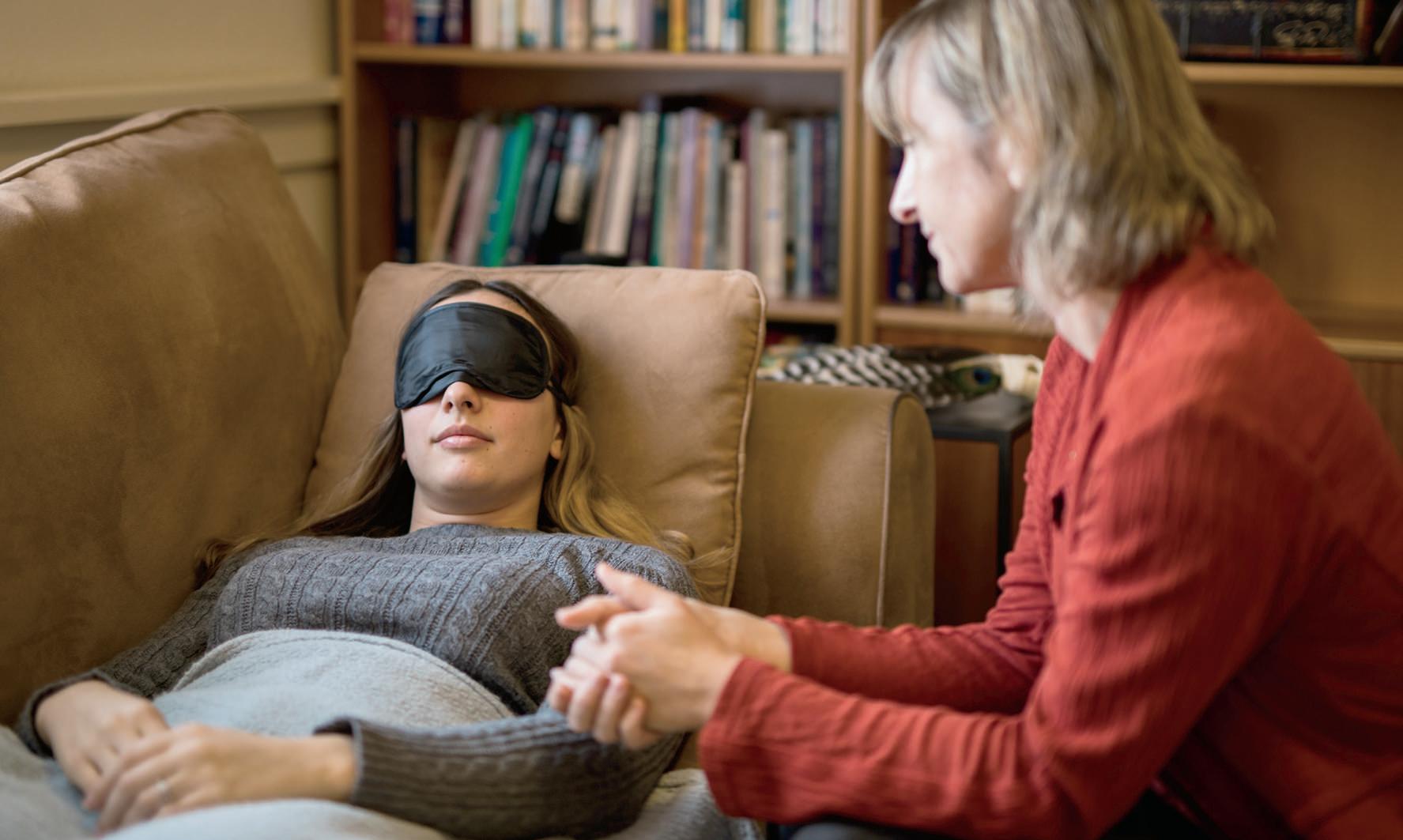
you looking for a more holistic approach to your anxiety and depression?
Marin Ballet (www.marinballet.org) is commemorating its 60th anniversary this month. A fundraising dinner with dance-themed activities and auctions takes place March 24, and the anniversary performance is being held at Novato’s Marin School of the Arts on March 26. Marin Ballet is also honoring Laurie Klein, who has been teaching at the nonprofit for over 50 years, by establishing a new scholarship fund.

A new platform is available for local job seekers and those looking to hire. This year Marin Sonoma Impact Ventures (www.msivfund.com) launched MSIV’s Talent Hub, which is helping to connect local talent to North Bay startup companies that are hiring for full-time, part-time and project-based work. “We’re excited to facilitate these connections to provide meaningful career advancement for our community members and help accelerate the journey of these startups to build the next great North Bay company,” says Zachary Kushel, founder and managing partner of MSIV, the first regional venture capital fund for Marin and Sonoma County startups.



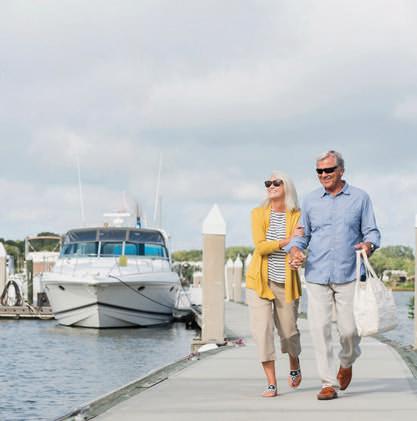
Montage Healdsburg (www.montagehotels.com) is offering a one-of-a-kind Mushroom Foray excursion through Adventure IO this month. Guests will embark upon a guided two-hour journey through Sonoma’s Russian River Valley, learning about the fundamentals of mushroom foraging and the fungus’ role in the ecosystem. Meanwhile, the Napa Valley Mustard Celebration is in full swing, honoring the crowddrawing blooms of the mustard plant as well as its essential role in the health of the area’s numerous vineyards. Silverado Resort and Spa (www.silverado resort.com) is participating in the festivities with a Mustard Season Package and seasonal mustardinspired bar bites and spa treatment.
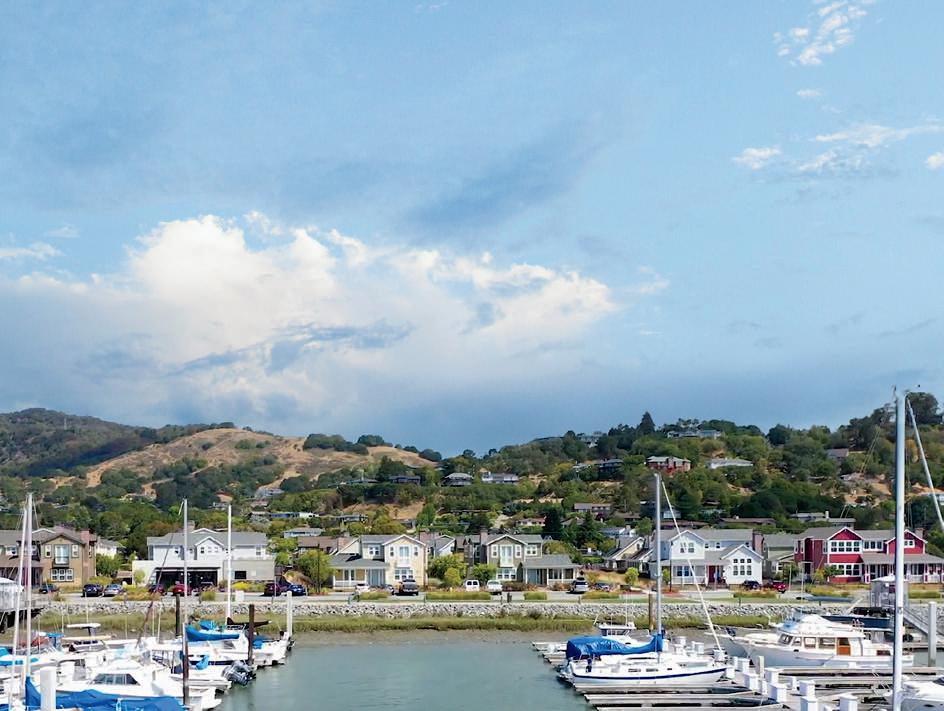
local splurges.
Who says you need alcohol to have fun? These nonalcoholic options are just as tasty, sans the calories, hangover and guilt.
 By Casey Gillespie
By Casey Gillespie
1. Seedlip is the OG of cool nonalcoholic drinks and the Garden 108 is a prime example. The herbal blend incorporates peas, rosemary, thyme, spearmint, hay and hops. Check Seedlip’s website for delicious recipes and be sure to display the bottle where it can be admired. Available at Safeway (Corte Madera) and www. seedlipdrinks.com, $32

2. If you love a good IPA then an alcohol-free version should be on your shopping list. Hoppy with notes of citrus and pine, Best Day Brewing’s West Coast IPA is best paired with a sunny day and good friends. Available at Bolinas Super Market (40 Wharf Road, Bolinas) and www.bestdaybrewing. com, $13.99
3. If your go-to cocktail is a negroni , you are going to love Little Saints’ Negroni Spritz Sugar-free with delightful notes of bitters, orange rind and juniper, the effervescent refreshment also boasts CBD and adaptogenic mushroom extract. Available at Bolinas Super Market (40 Wharf Road, Bolinas) and www.littlesaints. com, $27 for a four-pack

4. Created by plant scientists and bartenders, Three Spirit’s Nightcap combines lemon balm, turmeric, ashwagandha, vanilla orchid, valerian root, licorice and ginger for the perfect pre-bedtime treat. Enjoy it on the rocks with your favorite garnish. Available at Williams-Sonoma (The Village at Corte Madera) and us.three spiritdrinks.com, $39

5. Garden party weather is here and these chic Milly tumblers by Mario Luca Giusti (available in a variety of colors, but shown here in green) will make a lovely spring addition to your collection. Available at ANTHEM San Francisco in Marin (Corte Madera Town Center) and www. anthemsf.online, $35

6. When you are looking to make an extra-fancy mocktail these W&P Peak Ice Prism Molds are the way to go. Not only do they come in a pack of two (ask a friend to happy hour!), they are as dazzling in person as you would hope. Available at Sur La Table (1806 Fourth Street, Berkeley) and www. wandp.com, $15 for one and $24 for two





REMEMBER THAT MOMENT WHEN WE REALIZED that the Slow Food movement of the late 1980s wasn’t so much a move forward as a delicious stepping back? Its focus was on good, clean, whole foods, locally grown, prepared like our ancestors had done it, and appreciated when eaten. And somehow that age-old concept seemed revolutionary at a time when we had strayed so far from our roots.
Enter a new green wave of the past informing the future in Wine Country. Sustainable, organic, biodynamic and dry farming — these are not new practices. “Sustainability
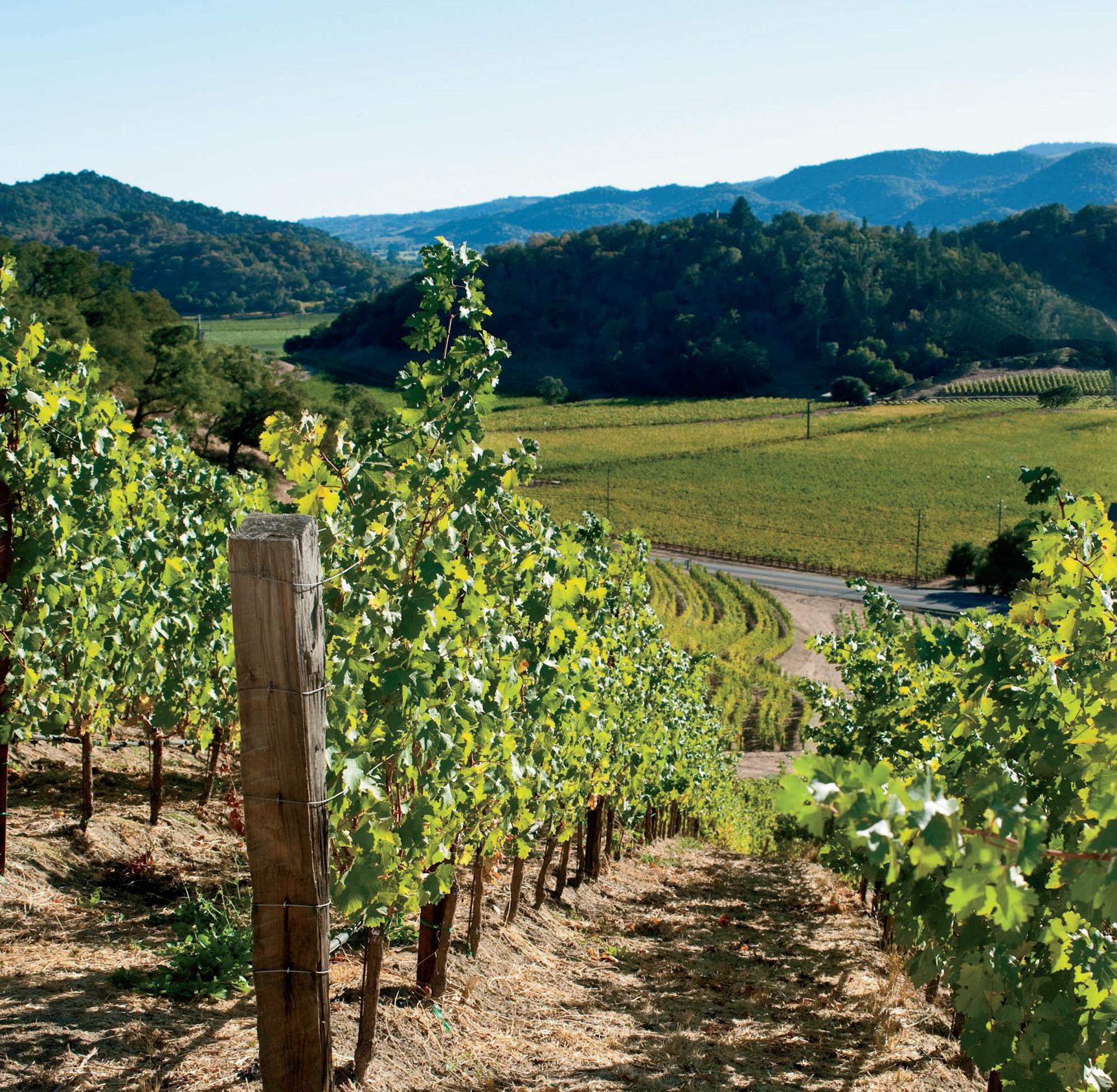
To move ahead we must first look back — especially when it comes to sustainability and centuries-old farming practices.
By Christina Cavallaro Cliff Lede Vineyardsis not a dirty word anymore, it’s just how we are doing things,” says Allison Wilson, director of vineyard operations at Cliff Lede Vineyards. But the terms themselves can still feel confusing. Let’s take a quick look at the differences and where the practices overlap.
Sustainable winegrowing focuses on the care of people and place while conserving resources, as well as maintaining and regenerating soil. It also protects air and water quality, preserves local ecosystems and wildlife habitats, and enhances relationships with employees and communities
Bob McClenahanfor a healthy situation overall. Right now 99 percent of Sonoma County wine growing is certified sustainable and Napa is on a similar path.
“We are a proud part of a community,” says Baldacci Family Vineyards estate winemaker Michael Baldacci.
“It’s more difficult to find someone not farming sustainably. Because what you do doesn’t just affect you, it affects your neighbors, too.”
The organic label means a wine is made from organically grown grapes (sometimes third-party certified), without any added sulfites, synthetic chemicals or pesticides. Wilson says, “I’m a mid-millennial. Cliff Lede utilizes technology, but there is a real sense of getting back to basics. Like realizing over the last 50 years maybe we didn’t need all that fertilizer.”
Biodynamic is touted as the highest level of organic farming. The elimination of synthetic chemicals is just the starting point. The vineyard is viewed as an entire ecosystem.
Lisa Amaroli, director of winemaking at Benziger Family Winery, who was at the forefront of biodynamics, recalls those early days when naysayers called their methods “voodoo,” fixating on images of dung-filled cow horns buried in the earth. “One thousand years ago people were much more connected to nature,” she points out. This type of farming is based on biodiversity of animals, plants, insects and even bacteria that work together. “It’s about balance, not eradication,” says Amaroli. Using homeopathic teas, composting, cover crops and animals that live on the estate “is not mysterious, it’s natural,” she says.
A lesser-known practice, dry farming, is becoming more and more common among winegrowers. Dry farming is the use of moisture stored in soil brought to the surface through tilling and is, by necessity, the future. But this centuries-old technique is also the past. Erik Miller of Breaking Bread Winery in Sonoma looks to dry-farmed vines that have some age for the trending lower-alcohol style of natural wine he is making.
“Older vines allow for physiological ripeness to come at lower sugar levels. And you can’t dry-farm a five-year-old vine. The roots aren’t deep enough.” But just next door, fourth-generation dry farmer John Teldeschi has vines that are 115 years old with roots that go down 20 feet.
Baldacci says, “It’s just a reality that I will spend my career in drought. We’ll be dry-farming and picking earlier. Pinot and cab are now picked at the same time.”

Larkmead’s Avery Heelan, one of the youngest winemakers at one of the oldest estate wineries in Napa, is dry-farming a small three-acre experimental plot with an eye to the most resilient varieties and clones that may suit Napa in the uncertain future. “It’s trying to control the things we can’t control,” she says. One thing seems certain, though: the future begins with going back to our roots.
Baldacci Family Vineyards (in transition to CCOF certified, California Certified Organic Farmers, 2023) 6236 Silverado Trail, Napa, www.baldacci vineyards.com
Benziger Family Winery (triple certified, biodynamic since 2000) 1883 London Ranch Road, Glen Ellen, www.benziger.com
Breaking Bread Winery (lower-alcohol, dry-farmed, low-intervention natural wines, in transition to CCOF certified, 2023) 4791 Dry Creek Road, Healdsburg, www.breakingbread wines.com
Cliff Lede Vineyards (Certified Napa Green sustainable in both land and winery since 2015) 1473 Yountville Cross Road, Yountville, www.cliffledevineyards.com
Larkmead Vineyards (research block planted in 2020, in transition to CCOF certified, 2023) 1100 Larkmead Lane, Calistoga, www.larkmead.com
Ram’s Gate Winery
(California Certified Sustainable and Fish Friendly Farming certified, in transition to CCOF certified for 2023)
28700 Arnold Drive, Sonoma, www.ramsgatewinery.com
Round Pond Estate Winery (Certified Napa Green sustainable and Fish Friendly Farming certified)
875 Rutherford Road, Rutherford, www.roundpond.com
Interested in trying a few of the wines made with these practices? Here’s a running start.Harvest time at Benziger Family Winery. Courtesy of Benziger Family Winery
local getaways.
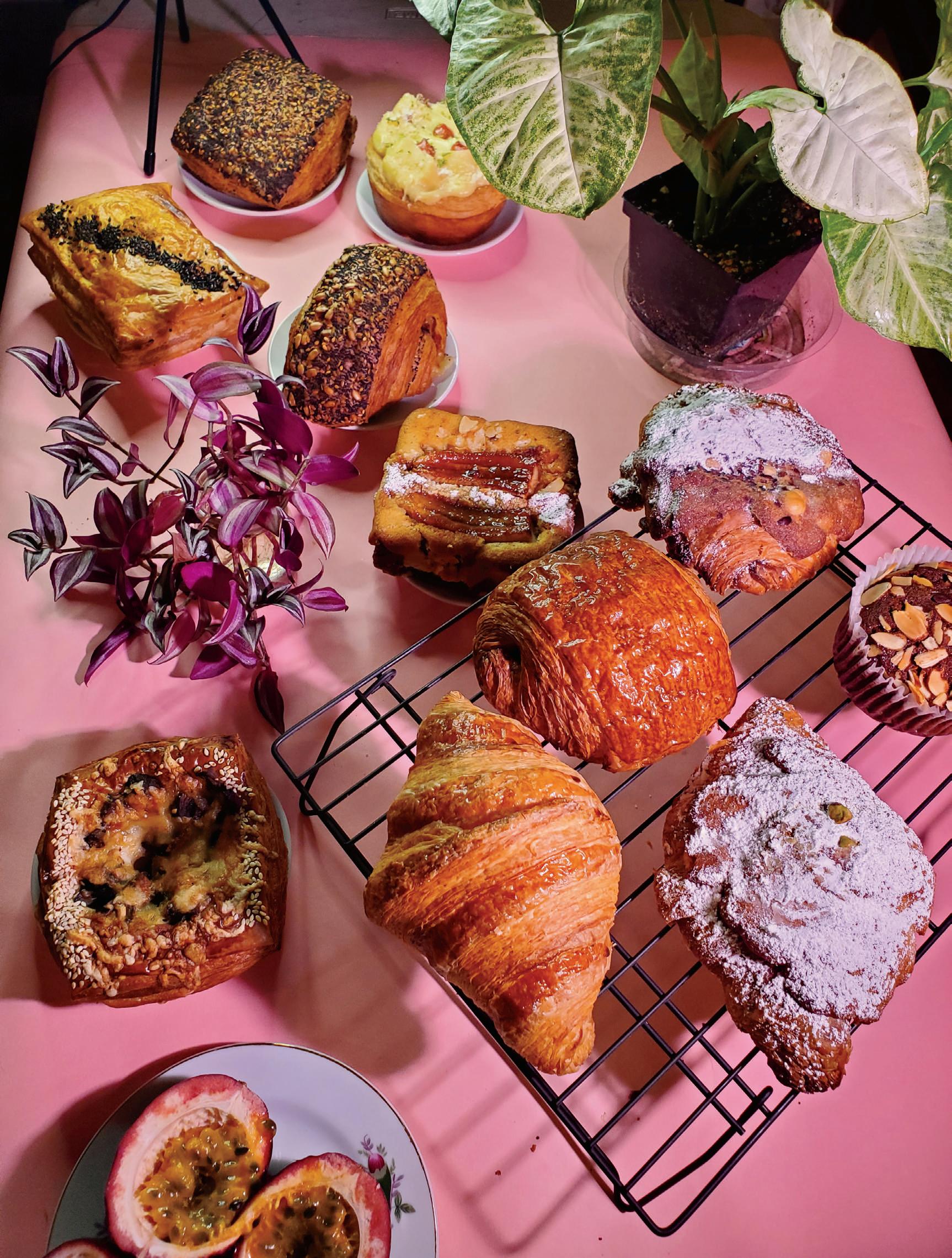 Neighbor Bakehouse
Neighbor Bakehouse
 By Casey Gillespie
By Casey Gillespie
San Francisco’s Dogpatch neighborhood is one of the fastest growing in the city. Situated between Potrero Hill and the bay, and steps away from the Chase Center and Oracle Park, the area retains much of the industrial feel from when it was the nucleus of shipbuilding in the 1800s. Many of the leftover warehouses are now residential lofts and art galleries. So whether you are looking for a cultural weekend trip or somewhere to grab a bite or drink pre- or post-game or concert, Dogpatch has a lot to offer. Most of the restaurants and bars are dotted along Third Street, but don’t be shy about veering off; there are many gems to be discovered.
1275 MINNESOTA STREET
www.besharamrestaurant.com
Chef Heena Patel — who you may remember owned and ran Rasoi at the Ferry Building’s farmers market — cooks up seasonal Western Indian cuisine here, which is to say it is full of flavor, textures, interesting ingredients and 100 percent vegetarian. Even carnivores won’t be able to resist.
1150 25TH STREET
www.mcevoyarts.org
The foundation is home to the McEvoy family’s wildly impressive contemporary art collection (which includes pieces from Diane Arbus, Andy Warhol and David Hockney, to name a few). But you can also expect to find screenings, exhibitions, workshops, talks and events. Rituals of Devotion opens on March 10 and features sculpture, painting and photography that explores the theme of spirituality.
1275 MINNESOTA STREET
AND 1150 25TH STREET
www.minnesotastreetproject.com
Located in three separate warehouses, the Project is a collection of permanent and temporary gallery spaces for modern art. It is free to the public during businesses hours and offers a glimpse of the vibrant S.F. art scene. Open Tuesday through Saturday from 11 a.m. to 6 p.m.
2569 THIRD STREET
www.sfmcd.org
If you love design then you’ll want to make time to experience this museum. The staff collaborates with artists, designers and other museums as well as universities to create stimulating exhibits for visitors. Bull.Miletic: Proxistant Vision is on view until March 19. Obviously, a visit to the gift shop is a must.
2343 THIRD STREET, STE. 100 www.neighborsf.com
For everyone wondering where to get that mouthwatering croissant you have been craving, this is the spot. Owned by baker Greg Mindel and his wife, Christine, the airy shop is just as inviting as the baked goods. Stop by Friday through Sunday and indulge in one of the limited-offering pastries or grab some freshly baked bread to take home. The bakery is open Wed. to Sun., 8 a.m. to 2 p.m.
Nosh This
2325 THIRD STREET, STE. 326
www.noshthis.com
This shop is known for its addictive Bacon Crack chocolates and one bite will tell you exactly why. Irresistibly made with applewood-smoked bacon, toasted organic Kashiwase Farms almonds, Gilt Edge Creamery butter and 72 percent cacao Guittard chocolate. Mouth watering yet?
RH San Francisco
590 20TH STREET
www.rh.com/sanfrancisco
RH’s newest Bay Area location is a five-story, 80,000-square-foot design gallery housed in the historic (and incredibly beautiful) Bethlehem Steel Building. The Palm Court restaurant is a chic respite from a day of gallery hopping, and if only a glass of champagne will do, then add a stop at the wine bar.
Institute of Contemporary Art

San Francisco
901 MINNESOTA STREET
www.icasf.org
An iconic destination for contemporary art, ICA SF offers free admission and the visual feast is plentiful. There are three exhibitions currently on view — This Burning World, Resting Our Eyes and A Weed by Any Other Name — that you won’t want to miss. Keep in mind that it is closed Monday, Tuesday and public holidays and plan accordingly.
Third Rail
628 20TH STREET
www.thirdrailbarsf.com
This cocktail and jerky bar (yes, you read that correctly) is the kind of thing that we travel into the city for. The cocktails are superb and beautifully prepared and worth a stop on their own, but do it correctly and opt for a beer, shot and jerky (they also have a veggie version).
2419 THIRD STREET
www.ungraftedsf.com
Dropping in for a glass of vino at a wine bar is always a good idea and this one is at the top of our list because it is run by an all-sommelier team. Not only does Ungrafted offer a stellar lineup of wines (obviously), it also has full lunch and dinner menus as well as wine classes. Sign us up!





The author of a new Sonoma County culinary guidebook draws inspiration from the chefs and owners of the many restaurants and eateries in the verdant valley as well as her own family’s deep farming history in the region.
By Daniel JewettEVEN THOUGH SHE WAS BORN IN SONOMA COUNTY and has spent the last 25 years living there, longtime travel writer Yvonne Michie Horn loves nothing more than to see an upcoming trip on her calendar — but when the pandemic hit, her schedule was clear and she was stuck at home.
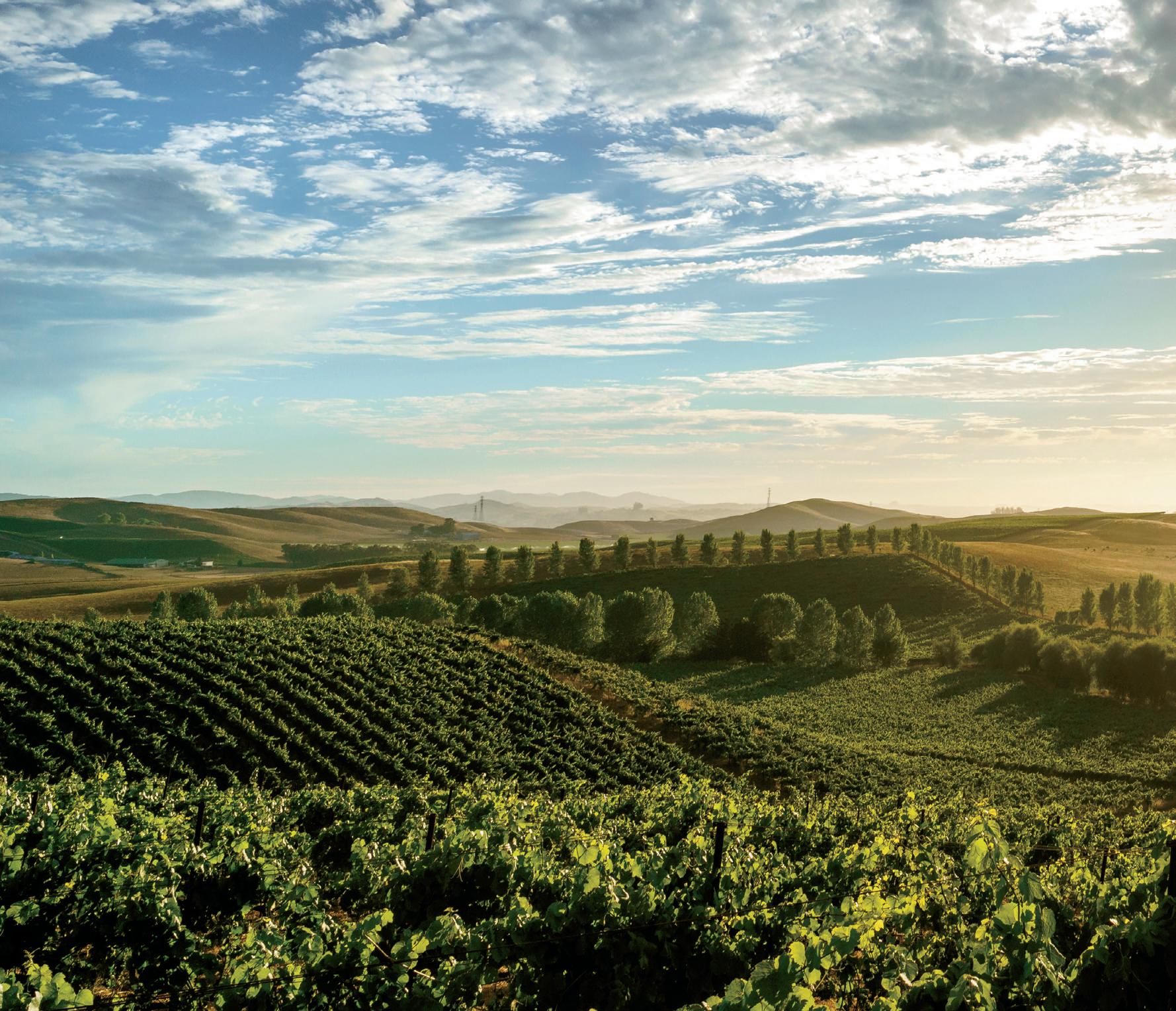
“During the pandemic I had no deadline, no trip to look forward to,” says Horn. So when the folks at Reedy Press asked her to do a book on the Sonoma County food scene from a local’s perspective she agreed, and Unique Eats and Eateries of Sonoma County: The People and Stories Behind the Food was born.
Horn is quick to point out the operative word in the title is “unique.”
“This book isn’t about critiques or reviews — whatever page you turn to, it’s going to be good food,” she says.
“My rule was that it had to be good and it had to be unique in some way. Is it unique in itself? Or is it uniquely Sonoma County? Is there a compelling story?”
As the breadbasket for San Francisco and beyond, the county also produces food that is special, she points out. From Gravenstein apples to Dungeness crab (Horn says it’s best when pulled from the Sonoma coast) to Crane melons, this region offers chefs a lot of inspiration. Sonoma County also has more than 63,000 acres of vineyards and some 425 wineries.
Some of her favorite spots included a new discovery in Lightwave Cafe. “The vibe was so warm and great, the food was so good and the story was just so much fun.” Also an old classic in Franco American Bakery — “it’s been on the same corner for well over 100 years and their bread
is so dependably good. Their Dutch crunch is just fabulous and of course their sourdough.” And a spot featuring a name, Eye Candy Chocolatier, with a twist — “The thing I loved about this was the name; it was started by Dr. Sonja Schluter, who specializes in glaucoma, and their candy is just gorgeous.”
As for Horn’s own history in the area: both her father and grandfather owned prune ranches. “That’s when prunes were king here and not the grapes,” she says, laughing.

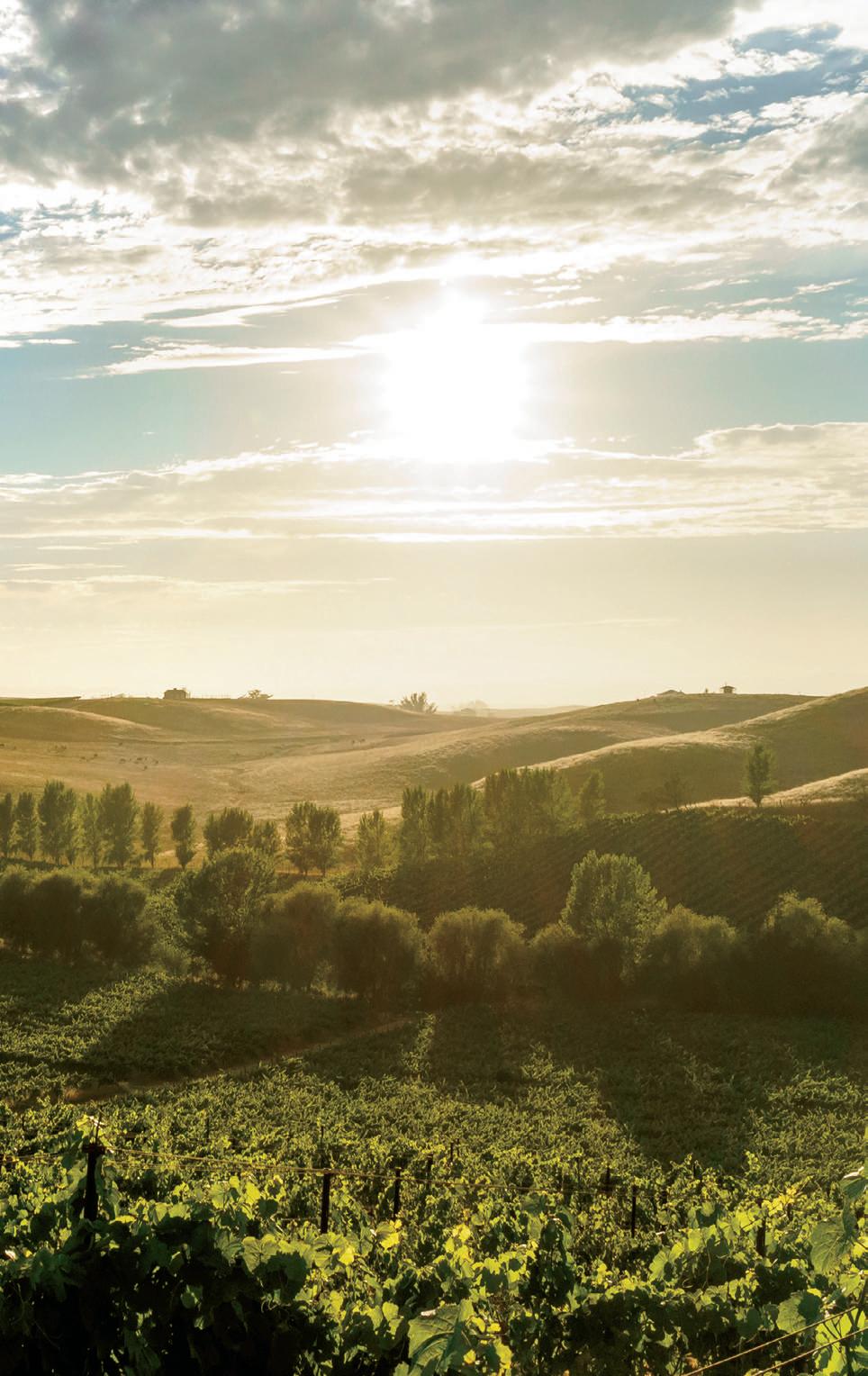
“A chunk of historic Santa Rosa was left behind in the late 1940s, when Highway 101 cut through the city. It is now known as the South of A Street Art District. The turnaround developed gradually as, one by one, artists found affordable space in forgotten commercial and industrial buildings. Cafe Frida Gallery, named for Mexican painter Frida Kahlo, is a recent addition. The co-owners are Mario Uribe and his son-in-law Mamadou Diouf. How did the cafe get its name? In 2018, Uribe ‘just for fun’ painted a large tableau picturing Mexican artist Frida Kahlo and her husband, Diego Rivera, with famed Sonoma County horticulturist Luther Burbank.”
“The Swiss Hotel has seen it all. Flags on the balcony display its history: the flags of California, the United States, Switzerland and Italy. Don Salvador Vallejo, brother of California general Mariano Vallejo, built the handsome adobe structure around 1840 to house his growing family. As the years passed, other families called it home. Why the Italian flag? Hank Marioni is the fourth generation of his family to own and operate the restaurant-hotel. His great-grandfather Mose Mastelotto bought it in 1923, passing it on through a succession of sons and daughters to Marioni’s ownership in 1991.”
“Vineyards carpet seemingly every inch of the Dry Creek Valley’s 16-mile length and two-mile width. The valley is best known for its zinfandel, and grape-growing has been going on in the area for nearly a century and a half. But tucked away among the valley’s sea of vines is a surprising treasure, Sonoma County’s only remaining peach orchard. San Franciscans Gayle Okumura Sullivan and her husband, Brian Sullivan, stumbled upon the orchard in 2000 while looking for a piece of land, a country home where they might grow ‘something.’ In vineyard-abundant Dry Creek, it was expected that the Sullivans would tear out the orchard in favor of grapes. Instead, they planted 100 more peach trees and dedicated themselves to the more than 60 years of organic farming practiced by the orchard’s previous owner.”
NEW HEALTH AND WELLNESS BRANDS seem like a dime a dozen nowadays. Out of the zillions of options, what should you feed your kids? Clean your home with? Drink for a supplement boost?
Each brand is vying for and buying your attention. But Nutrition Capital Network (www.nutritioncapital.com) knows the real deal. The company works as a community of health and wellness businesses, investors, selection committee members and alumni (companies who have gone through it and know the lay of the land).
“It’s an ecosystem that we help nurture and grow,” says Mike Dovbish, Marin resident and executive director of Nutrition Capital Network. “Our primary purpose is to funnel investors and help companies raise money or gain partnerships — but part of that work is us creating this community.”
For health and wellness brand directors who think they’d make it big if only they had the right contact or money in the bank: this community is their golden ticket.
Nutrition Capital Network hosts four events per year — in New York, Europe, Canada and San Francisco — where roughly 20 small companies present their brands to the top investors and mentors in the industry. Think Shark Tank but everyone’s wearing Birkenstocks.

Between these four events, Nutrition Capital Network holds educational events at the two largest conventions in the industry: Natural Products Expo West (Anaheim) and Natural Products Expo East (Philadelphia), both of which are run by New Hope Network, which acquired Nutrition Capital Network a few years back.
These events are where the greater community begins. Presenters are selected by a committee of former founders and industry veterans who help coach each company before the big day. After each event, presenters become alumni and the community continues to evolve.
To date, that looks like 903 different presenters, 50 percent of which received funding from investor groups. The Nutrition Capital Network community includes names you know, like Annie’s, Essentia Water and KeVita. But also some names you may not have heard of (yet) like Super Coffee, Nuritas and nutpods.
The ecosystem doesn’t stop there. Nutrition Capital Network maintains a database of information available to its community members filled with insider knowledge on deal originations, market intelligence and other business development details to provide insight on presenters’ (and the broader industry’s) growth.
Where other similar companies in the industry focus solely on events for businesses to showcase what they offer, Nutrition Capital Network makes the investor community priority number one. That’s how the health and wellness industry flourishes and develops.
“Just by being out there we have helped grow the health and wellness industry to be an interesting and exciting space for investors who are not currently investing in this category,” says Dovbish.
Investors and health and wellness consumers alike should keep an eye on those companies that pop up on Nutrition Capital Network’s website. Those logos may just be occupying space in your pantry soon.
This innovative network connects investors and mentors to new entrepreneurs to bring the next generation of healthy food products to your pantry.Carlotta Mast, SVP of Natural Products, at Nutrition Capital Network’s Natural Products Expo East
● Brand Identity and Development

● Photography
● Logo Creation
● Marketing Plans
● Event Production
● Video
● Copywriting
● Media Buying
● Direct Mail

Creating and defining your identity is our passion. What your business needs is an aggressive marketing plan to separate you from the competition. Now is the time to put your plan in place. We can help. Communicating and delivering your strategic message is the difference between winking in the dark and actively wooing customers to your business. Let us develop a full creative and marketing strategy for your business.

We are a group of talented creative and marketing professionals who have turned decades of experience into a new Marin County media company. five19 | publishing includes Marin Living magazine and five19 | brandstudio. Contact Jessica Cline at 707.302.0850 or jessica@marinlivingmagazine.com to get started.
The community of North Bay women winemakers is growing stronger by the minute.
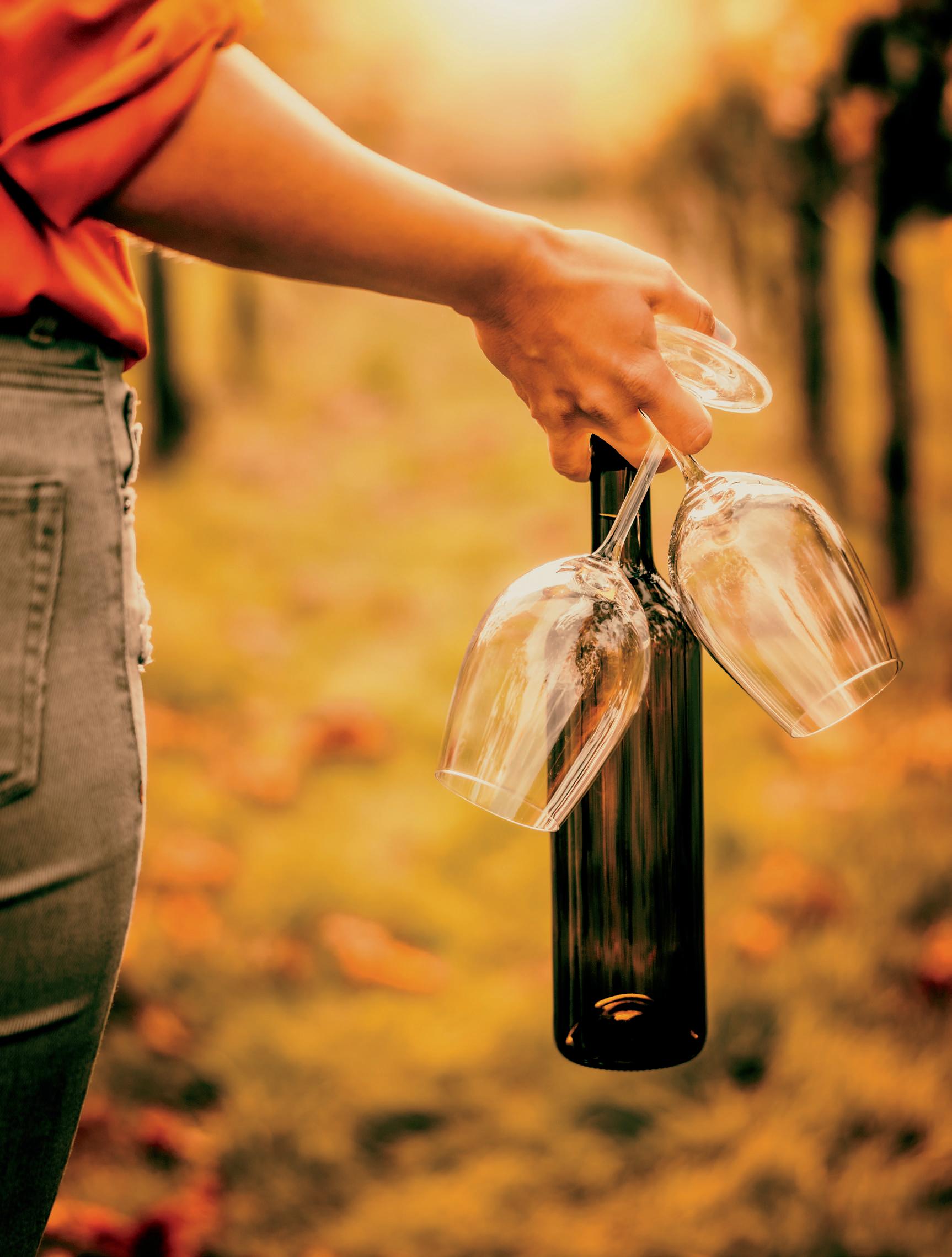 By Annie Gieser
By Annie Gieser
Pour a glass and raise a toast — women in wine are having their moment. Although women make up 59 percent of the wine drinkers in America, they only constitute 14 percent of winemakers in California (the state that produces the most wine in the country). However, the community that female winemakers have created among themselves is an empowering force and one that is changing the industry dynamic. Allow us to introduce you to these dynamic players.
Chandon
Chandon’s first female winemaker, Dawnine Dyer, started back in the 1970s, and now Chandon is proudly home to an all-female team of winemakers. Dyer’s legacy still holds tremendous importance for the Chandon team today, including the head of winemaking, Pauline Lhote.
“Some of my greatest mentors and role models have been the generations of female winemakers who came before me and blazed a trail to show that women can lead wineries and make truly exceptional wine,” says Lhote. “Mentorship is crucial in winemaking, which is why I feel a huge responsibility to provide my team with the same supportive mentorship I benefited from early on in my career.”
Even outside of Lhote’s team of Anna Muthig, Laura Fontaine (who is a Marinite) and Quynh-Lan Truong, she finds that “there are so many amazing and inspiring women in the industry today — in Napa Valley, Sonoma, Marin — that make working in this industry incredibly fulfilling.”

Although there is still a long way to go, Lhote has a lot of hope for female representation in the future: “I think there’s an amazing dialogue going on inside and outside of the workplace about these issues. I am definitely a part of this as a female mentor and leader at Chandon.”
what she’s drinking right now:
“I am really enjoying our delicious Chandon By The Bay Reserve Blanc de Blancs.”
Kathleen Inman started Inman Family Wines in 2000, working as a grape grower, winemaker and general manager. But tasting room visitors still ask her husband the technical questions.
“People don’t assume I’m the winemaker,” Inman says. “Our gender certainly doesn’t impact how well we make wine. As more women winemakers and winery owners step into these roles, I’m hoping they do what I have tried to do.”
Inman found her own way to make a difference: coaching young women in the industry, giving them encouragement to work hard, move up the ranks and make a name for themselves.
“It’s been wonderful seeing the women I have mentored start their own brands,” Inman proudly says. “I think leading by example is the way to change that prejudice and culture to ensure more women do succeed in senior positions in our industry.”
The wines of Pam Starr from Crocker & Starr in St. Helena
Elizabeth DeLouise-Gant grew up working on her parents’ vineyard in Napa, so she’s no stranger to the labor that goes into learning the winemaking process.


“If you don’t know, learn it,” DeLouise-Gant says to women looking to make it in the wine industry. “Build confidence through experience.”
Having been in the industry for so long, she’s experienced the downsides of being female in a male-dominated industry. But above all, she believes you can’t control what happens, just how you react to it. And that it’s the people along the way who make a difference in your path.
She notes two impactful groups: Women for WineSense and Women of the Vine & Spirits, both communities of women looking for professional development, fun events, and of course, discussion of good wine. Communities like these help younger women learn from the ones who came before them — and make connections that turn into opportunities for growth.
“It’s a good opportunity to connect with other women in various winemaking roles. I have worked hard to get to where I am. But I am also grateful to those who believed in me and gave me an opportunity,” she says.
what she’s drinking right now:
Antinori portfolio, specifically 2018 Prunotto
Barolo CerrettaLaRue Wines named its brand after founder Katy Wilson’s great-grandmother: “ Veona LaRue Newell always lived by the belief that anything was possible through hard work and determination,” says Wilson.

Wilson is the proprietor and winemaker for LaRue Wines, and she also makes wine for Anaba Wines, Reeve Wines and Smith Story Wine Cellars. But being a woman in wine was (and still can be) isolating for Wilson — she felt she had to work harder than any man with her same level of experience. The struggles have shown her the importance of advocating for herself and other women.
“By talking about the disparities in compensation, visibility and leadership in this industry, our collective voices are helping to swing the pendulum in the right direction,” says Wilson, who also serves on the advisory board for Women-Owned Wineries (WOW) in Sonoma. On average, female winemakers make 85 cents to a male winemaker’s dollar.
Wilson’s advice to young women in the industry is to learn everything about the craft and continue to learn more. And, most important, “know your worth and don’t settle for anything less.”
“At our house, we bought a small 10-liter barrel that we have filled with negronis. I love that it is something completely different from what I do and taste all day long. It allows me to relax and enjoy a drink!”
Jordan Winery
Maggie Kruse, Jordan Winery’s head winemaker, worked her way up the ladder after joining the team as an enologist in 2006. At Jordan, Kruse works to push the boundaries of tradition, making innovation, progress and research big goals each year.

For instance, Jordan is revamping its chardonnaymaking process by sourcing grapes differently to adapt to a changing climate and “replacing some of our barrels with concrete eggs, which will elevate the fruit while emphasizing its minerality,” she says.
Kruse balances that duality between tradition and innovation every day at Jordan, which isn’t always such an easy task in work that requires constant teamwork. But she sees women as the glue that brings it all together.
“I believe that women bring a unique ability to create harmony in the workplace and in winemaking,” she explains. “As a female leader, I strive to foster seamless collaboration and unity among the various teams and individuals I work with on a daily basis.”
Navarro gewürztraminer from Anderson Valley
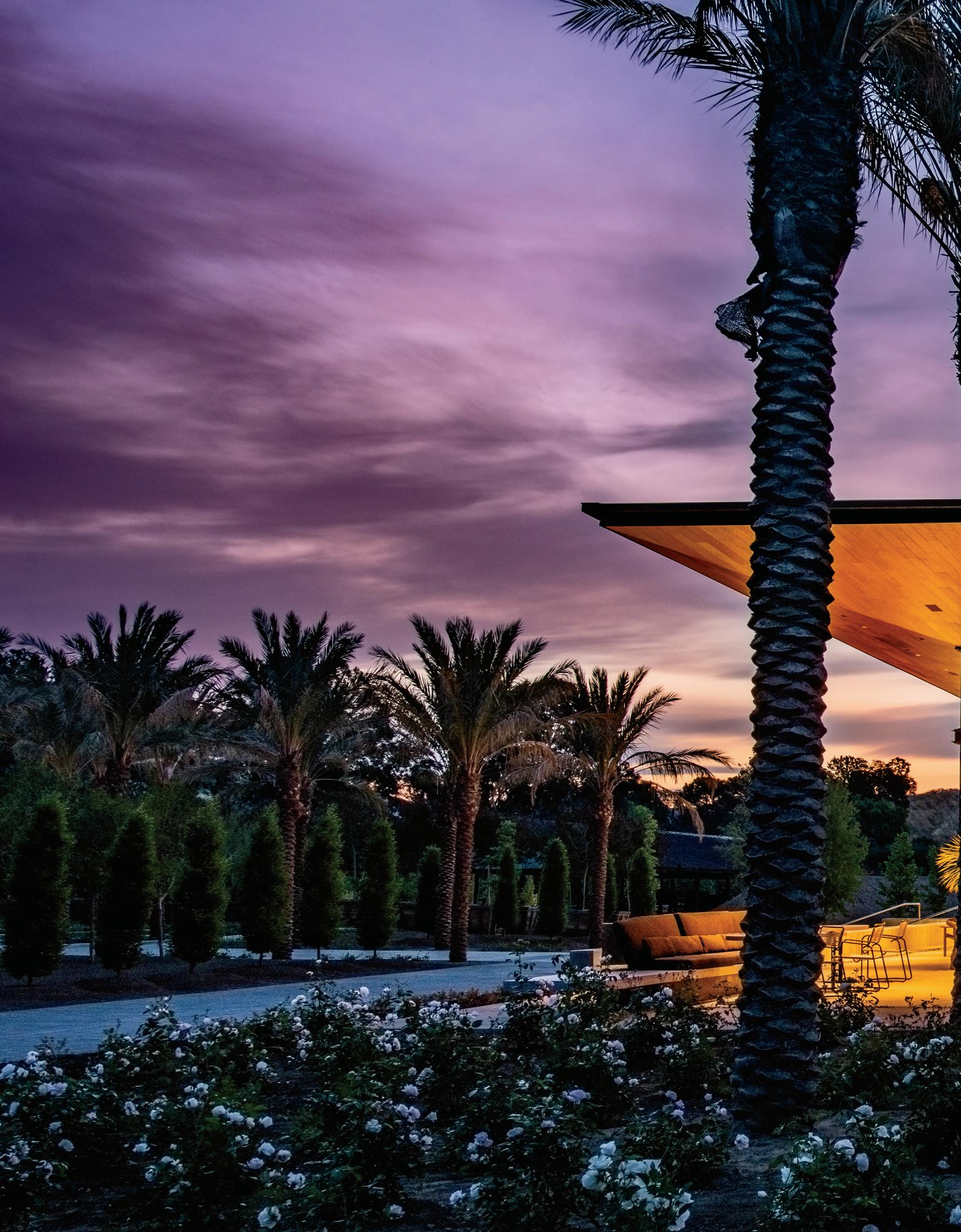
This winemaking family has deep roots in Napa and now a new generation is expanding operations to the verdant Suisun Valley.
By Amber Turpin Henrique du Tiel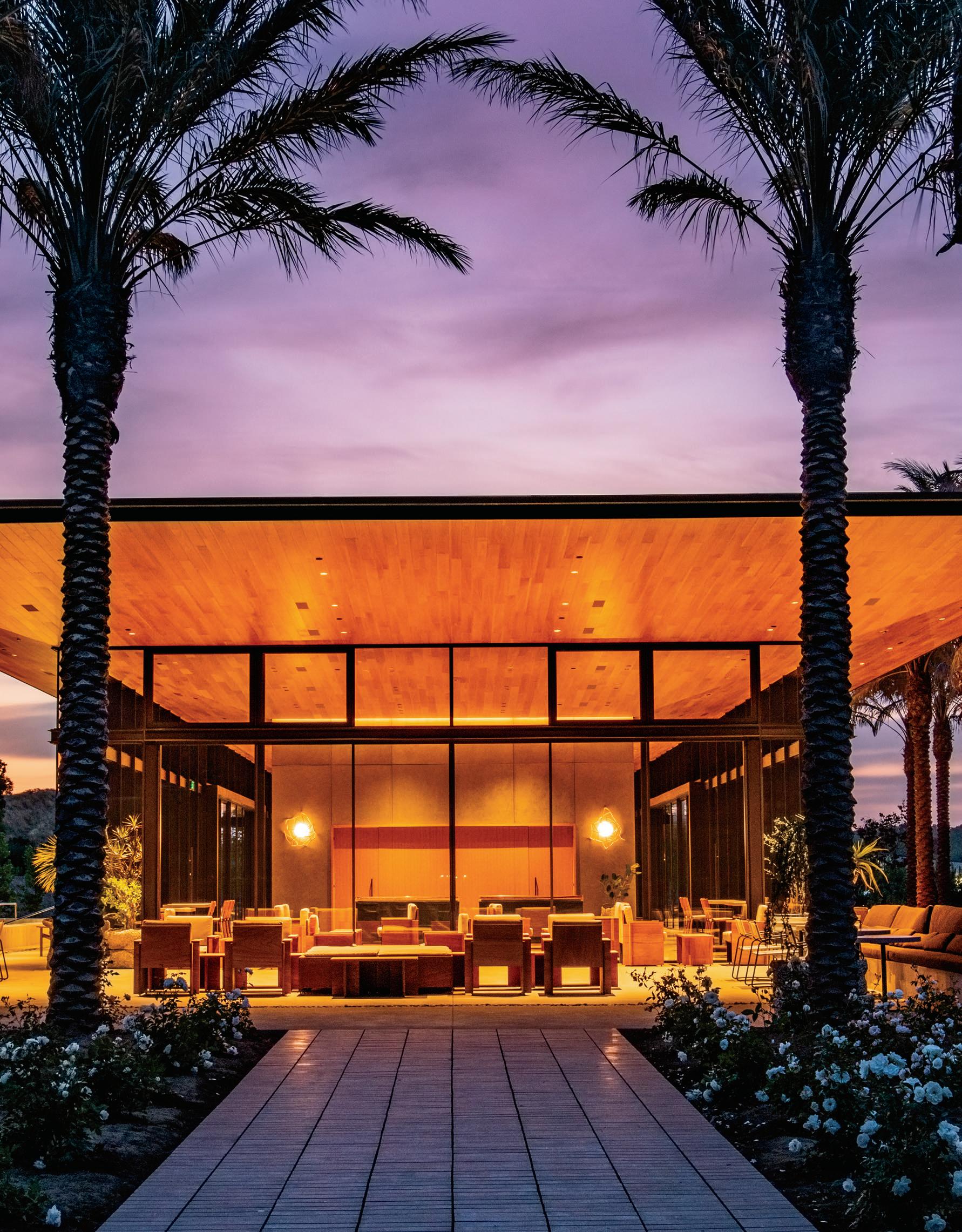
While other kids his age were learning how to ride bikes, he was shoveling grape skins out of a tank at his family’s winery in Napa, and he loved every minute of it. As the years progressed, Wagner and his friends’ first jobs were on the bottling line for minimum wage, and they spent their adolescence in vineyards the way some of us spent it in shopping malls and coffee shops. Today, Wagner is “ultimately a farmer and winemaker,” he says, leading Mer Soleil, Conundrum and Red Schooner, which all fall under the Wagner family of wines portfolio. He spends his days split between his home in Napa and in Suisun Valley, the newest winery locale for the brand.
When asked if he ever considered doing anything other than working in the wine industry, he says, “It was just life. Work certainly didn’t feel like work … it still doesn’t.” This is a testament to his family, of which he and his siblings are the fifth generation, a legacy that began in the 1800s with the Glos, Stice and Wagner families that helped shape early wine farming and making in the Napa Valley.
And while Wagner can still remember Napa before streetlights, and long before an overnight hotel stay cost more than $1,000, his lifetime so far is a blip on the family tree that spans hundreds of years back to the generations before him, all building a pioneering wine brand that now includes eight diverse labels.
The main Caymus tasting room in Rutherford is appropriately idyllic and vast, with credibility that attracts the throngs of Napa visitors. All for legit reasons, as the deep history and the Wagner name means something in this part of the world, and beyond.
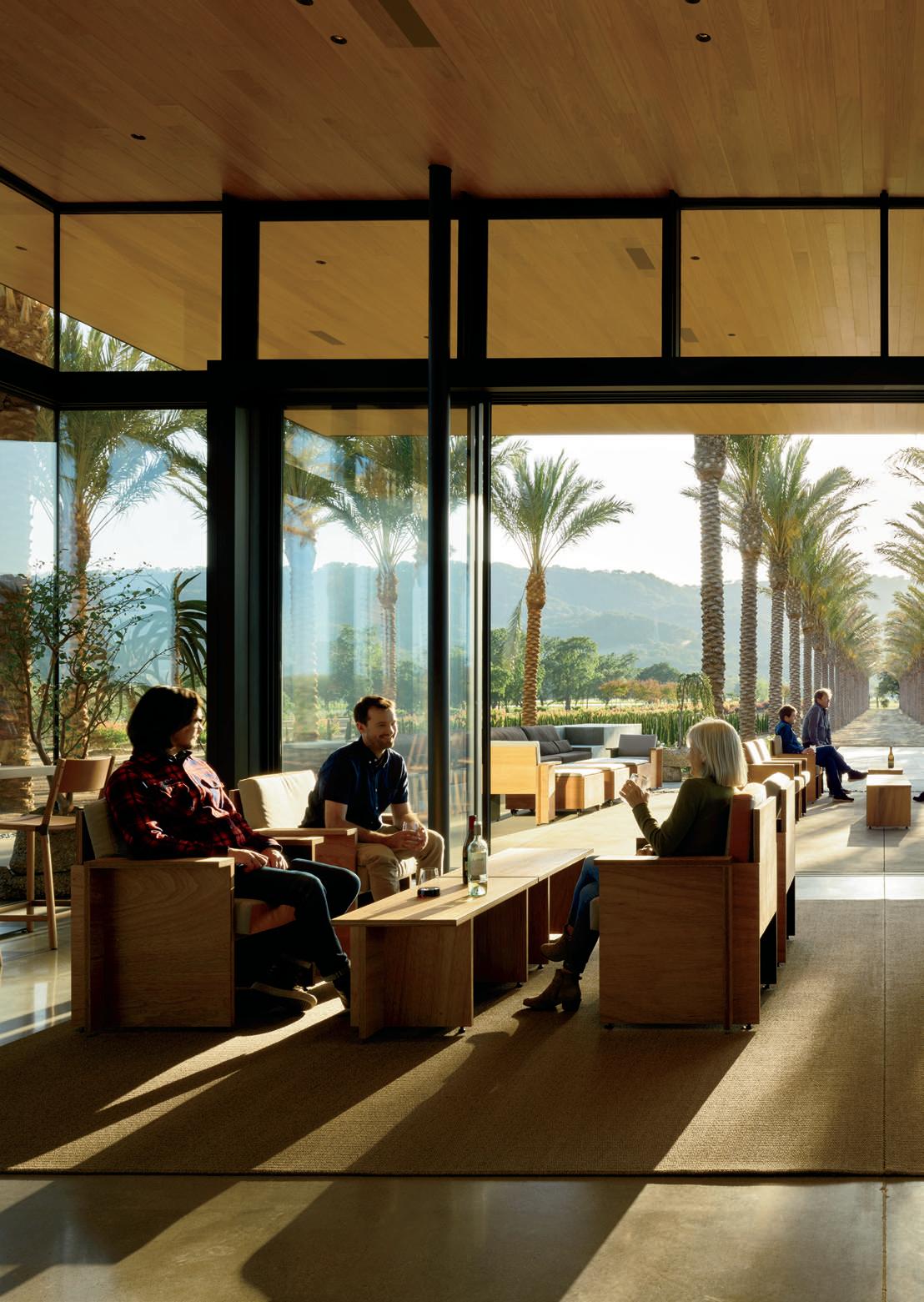
Well after the late 1800s, the story continues with Lorna and Charlie Sr., who grew up a mile apart in Rutherford and ended up marrying and launching Caymus Vineyards in 1972 with 240 cases of cabernet sauvignon. At age 19, their son Chuck became a major player in the business when the family took the leap in starting a commercial winery. Today, both Chuck and Charlie, as well as sister Jenny, collaborate on the winemaking and operations for all the brands, split out between them but
with crossovers. Younger brother Joe Wagner is also in the wine industry: he started his single-vineyard pinot noir label, Belle Glos, to honor his grandmother, Lorna Belle Glos Wagner.
Having farmed in this valley for many years, just a stone’s throw east of Napa and functioning as an AVA since the early 1980s, the Wagners decided to launch the Suisun Valley tasting room facility in 2019. The Suisun, the Indigenous Patwin tribe of Wintun people, originated in this
When Charlie Wagner was seven years old, he played among wine barrels.
part of Solano County. Their Patwin word “Suisun” translates to “‘where the west wind blows,” an elemental and powerful force still here today.
Chuck says that this area reminds him of Napa in the 1970s, those days when Charlie Jr. remembers dirt roads and when wine tasting was only a few bucks, if not free. They also recognize this region as having huge potential for great wine, sharing the same characteristics of Napa Valley but with a few differences that lend to suitability for
other varietals, 23 different varieties to be specific, petite sirah, merlot and cabernet sauvignon among them.
The Wagners felt that shining a light on this area would benefit their neighbors and fellow vintners, who is a tight-knit community that’s also much smaller than the wine region over the hill, with only 10 wineries compared to more than 500 in Napa Valley. They believe in the region so much that they put the Caymus name on their new label, Caymus-Suisun,
There is more to Suisun Valley than wine — here are some ideas to help plan your visit.
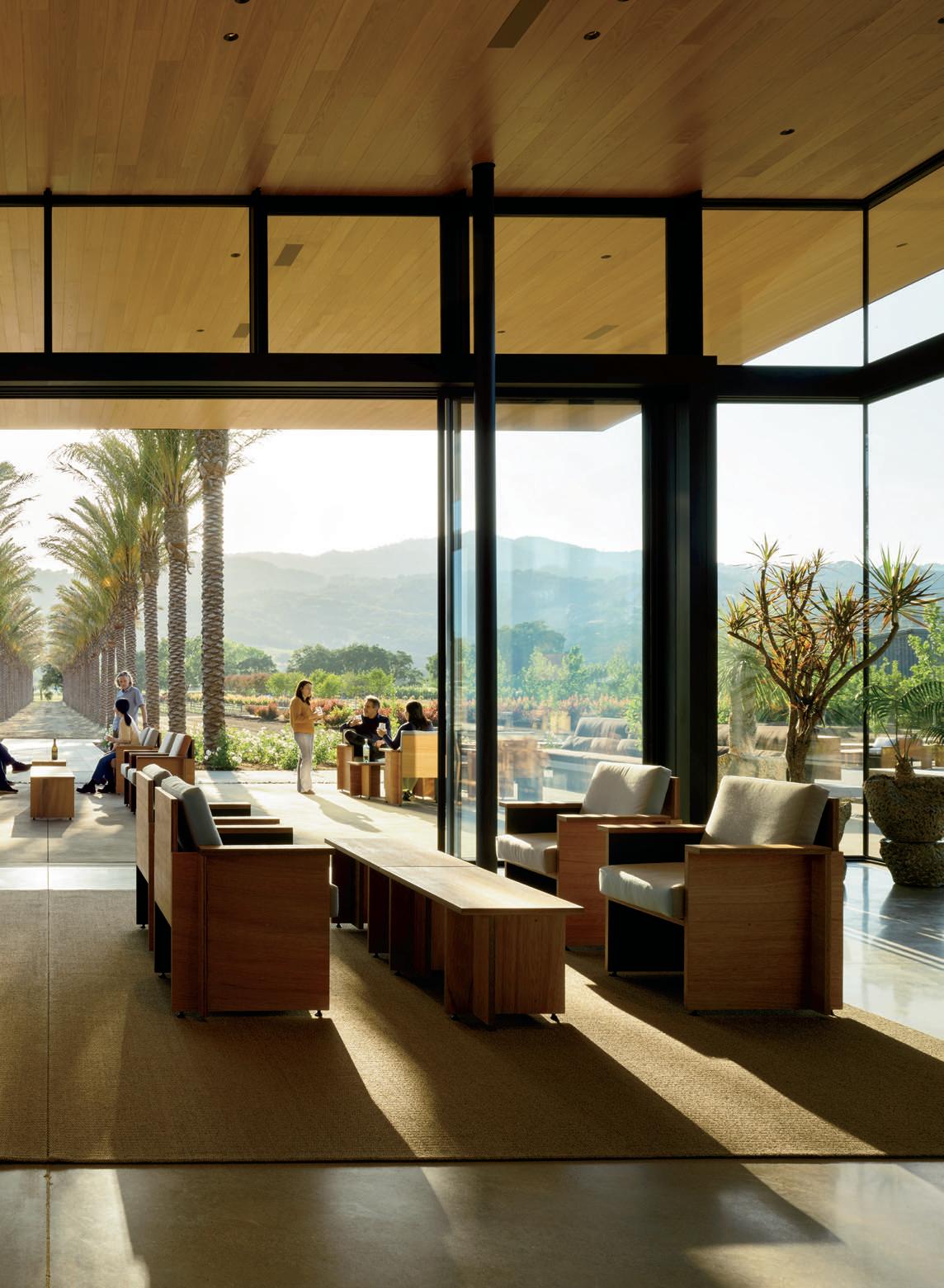
Mankas Corner
This main intersection of country roads is a one-stop destination, where you can enjoy a robust wedge salad and glass of Tolenas Eclipse white pinot noir at Mankas Grill (2522 Mankas Corner Road, www.mankasgrill.com), then head across the street to Suisun Valley Filling Station (2529 Mankas Corner Road, www.suisunvalley fillingstation.com), a tasting room, bottle shop and grocery store in one, featuring only local, small-production goods. Not only wine, but also nine rotating taps of local beers are available, plus a brand-new food truck cranks out bold sandwiches and burgers.
Olive Oil
Suisun Valley has the perfect climate for olive trees and Il Fiorello (2625 Mankas Corner Road, www.ilfiorello.com) brings a bit of Italy’s olive oil acclaim to Wine Country. Owners Ann and Mark Sievers, longtime producers of organic olive oil, are dedicated to quality transparent olive oil production and are very hands-on.
MORE WINE
The Suisun Valley Wine Co-op (4495 Suisun Valley Road, www.suisunvalleywinecoop.com) tasting room offers flights from three small-production wineries, including Sunset Cellars, King Andrews Vineyard and Blacksmith Cellars.
It Takes a Village Village 360 (4949 Suisun Valley Road, www.village-360.com), another new project very close to Caymus-Suisun, is a slick event venue, yoga studio, restaurant, coffee shop, bakery (try the gigantic slab of coffee cake) and BackRoad Vines wine tasting room. There is a direct walking path from Caymus-Suisun where it takes mere minutes to go through the vineyards.
the only other one besides the lauded Caymus label in their family of wines that features that flagship name.

When the pandemic hit, the opportunity to recognize the slower pace of things became a silver lining for the launch of the new Suisun facility. That new timetable, overseen by Charlie, has resulted in a place that is full of intention and subtle details packed with meaning, from the astounding light installation by artist Tanya Aguiñiga, symbolic of a vineyard burn pile, to the stained-glass map of the surrounding land parcels. An espresso bar is another element that Charlie Jr. had fun incorporating, influenced by his time in Australia (one of the wines under the Red Schooner label incorporates grapes grown there) and the Aussies’ dedication to great coffee. After a tasting here at Caymus-Suisun, any visitor can sidle up for a complimentary Mr. Espresso drink for the road.
The main building features a lounge area that offers wines by the glass, including the über-popular Emmolo sparkling wine made by Jenny, to enjoy at small tables, flanked by a wide fireplace feature. In front of that room is the main tasting area, with attendants who pour flights of the various Wagner

family wines. The entire building is encased in floor-to-ceiling windows, which open up to allow the Suisun wind to pass through, a temperaturecontrolled feature that eliminates the need for excessive dependency on fossil fuel heating and cooling. “You can feel the elements here,” explains Charlie. “It is natural air conditioning in the summer and in winter; there is a greenhouse effect. We really want to show off nature here.”
Speaking of, if you happen to visit during the summer and fall, your tasting will conclude with being handed a basket so you can go out and harvest tomatoes, corn, peppers and myriad stone fruits from the garden outside. Charlie says this is encouraged and sees how special this experience can be for folks who might be coming from areas where food is not grown nearby, let alone ripe and ready for picking.
At the end of the day, wine is an agricultural product, and the Suisun Valley is a scenic growing region that supports local farmers, ranchers and some very lucky winemakers. Perhaps it is time to go for a visit, before everyone else finds out and those tasting fees rise into the triple digits? As the locals say, “See you soon in Suisun.”
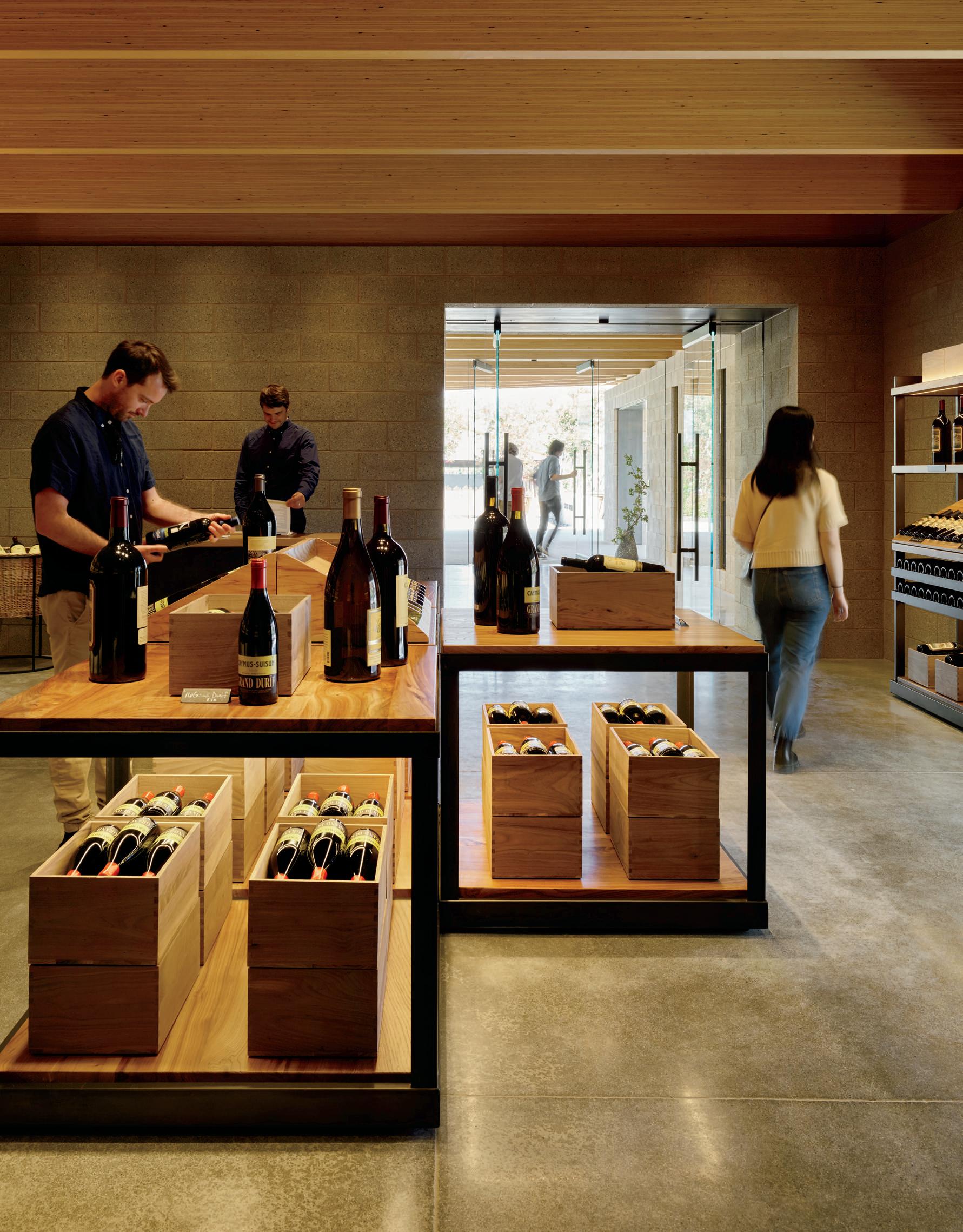 Matthew Millman
Matthew Millman
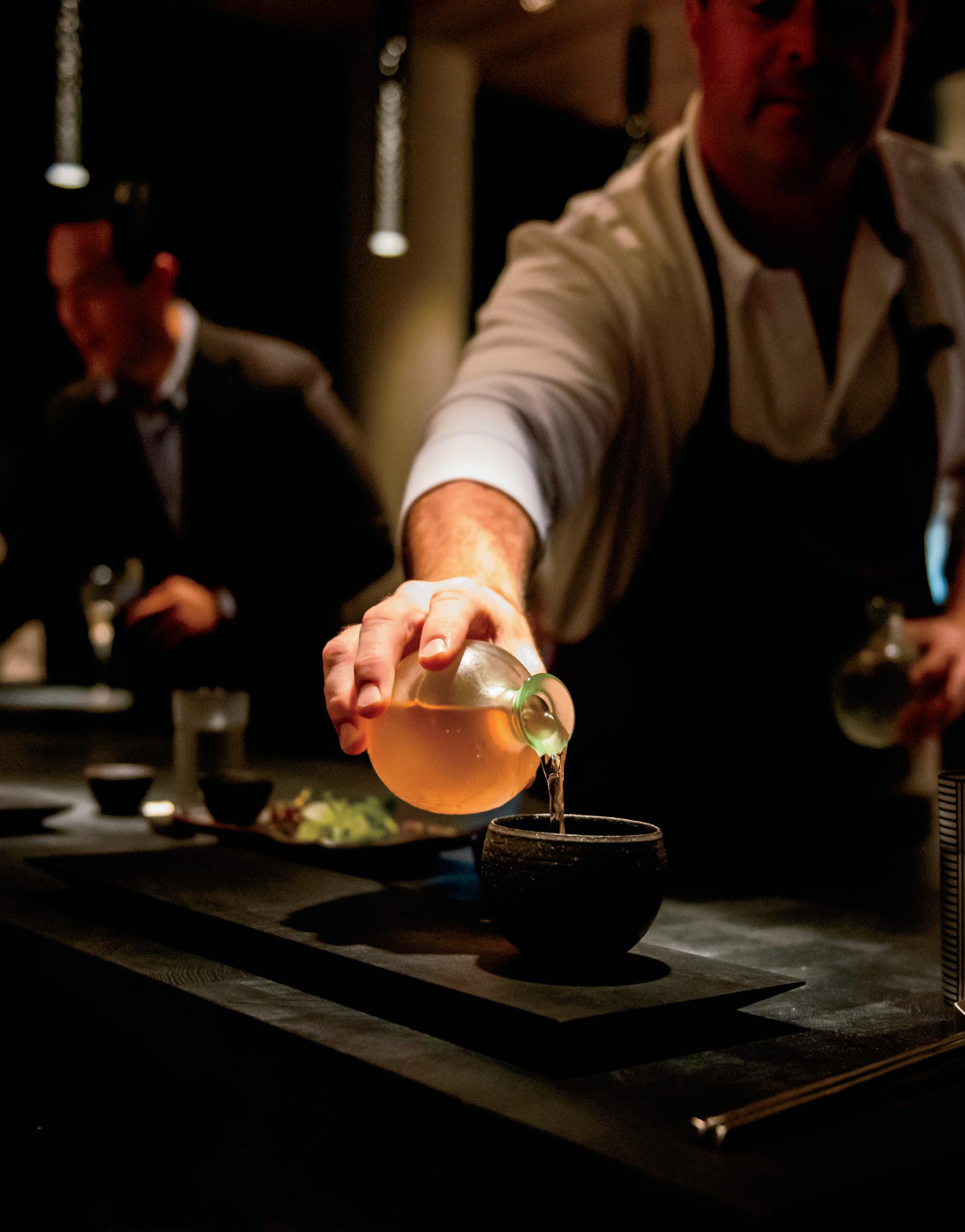 By Caitlin Hamer and Daniel Jewett
By Caitlin Hamer and Daniel Jewett
Find a truly unique approach to fine dining at Cyrus (www.cyrus restaurant.com), where dinnertime has been transformed into an unforgettable “Dining Journey.” With just 12 guests per seating, you’ll savor the intimate experience as much as you do the seasonal offerings. You’ll start the evening with canapes in the Bubbles Lounge; drinks are optional here, but we say splurge and purchase the beverage pairing. Next, proceed to the Kitchen Table to engage with chefs as they prepare the courses. And from there, head to the dining room to feast your eyes on views of Alexander Valley as you leisurely indulge in your meal at your table. The culinary adventure concludes with a stop in the Chocolate Room to receive a delicious parting gift.
275 Highway 128, Geyserville

When Mamahuhu (www.eatmamahuhu.com) opened its first Marin location in Mill Valley last year, fans of Brandon Jew’s cooking (he is most well-known for the boundarypushing Mister Jiu’s restaurant in San Francisco) got an affordable and approachable spot offering Chinese-American classics like kung pao chicken, wonton soup, egg rolls and sweet and sour chicken (a must-try). For this endeavor and its sister location in San Francisco’s Inner Richmond (a third location in Noe Valley opened earlier this year), the Michelin-starred chef partnered with Anmao Sun and Ben Moore, who opened Shanghai’s first seed-to-table restaurant, and the results are simple and satisfying. The menu at this counter-service-only restaurant is short and to the point, offering just five protein dishes (all meats can be substituted with vegetables or tofu), a sweet and spicy chicken sandwich and a stable of sides including the fan-favorite jasmine rice. “We want the food at Mamahuhu to resemble original Chinese-American dishes, and to exemplify the best versions of those classics,” says Brandon Jew. “For us, the clear road to that is using locally grown, organic ingredients.” 173 Throckmorton Avenue, Mill Valley


Alicia and Darren Banks’ journey to restaurant ownership actually began in 2013 when they bought a beachfront restaurant called the SandBar on the Caribbean island of Anguilla, where they were living. But when they heard that after 21 years, Dan and Holly Baker were ready to sell the popular neighborhood eatery Marche aux Fleurs in Ross, the couple moved back to Marin, where they first met, and, last October, reopened the restaurant as simply Marché (www.marchemarin.com). “We love the space. It’s a really great restaurant, the location is amazing and the building and patio area are so charming,” Alicia says. The Bankses have united with many of the old staff to put a new spin on the menu including making their own bread and Caribbean-inspired sauces and salad dressings. But some customer hits, like the Tuesday fried chicken special (now with an updated recipe), were too popular to leave off the menu. 23 Ross Common, Ross
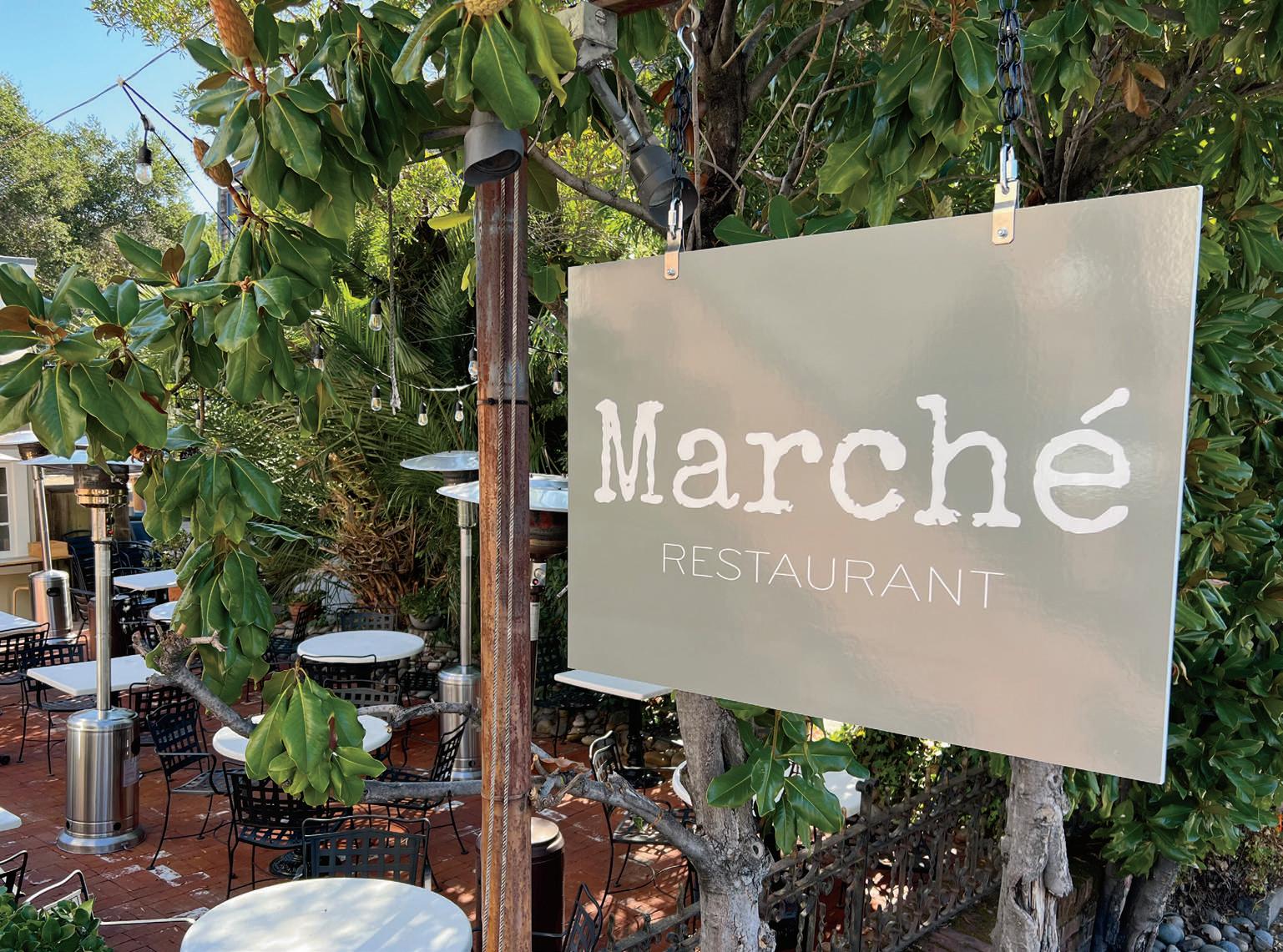
What better place for Eco Terreno Wines & Vineyards (www.ecoterreno. com) to expand than San Francisco’s storied Jackson Square? Open seven days a week, Eco Terreno’s Urban Tasting Room has personalized wine tasting options as well as small bites by executive chef Joe Ball, while the second floor’s exhibition kitchen offers an immersive space for private events and wine club members. Below the Urban Tasting Room, the Lyon & Swan supper club (www.lyonandswan.com) is open five nights a week for dinner, cocktails and live entertainment.
The French Californian menu pairs perfectly with wine, cocktails and eclectic entertainment options like music, cabaret and comedy, all of which reflect the underground venue’s historic past and live up to the supper club’s “Food and Debauchery” tagline.

Urban Tasting Room, 140 Columbus Avenue, San Francisco; Lyon & Swan, 124 Columbus Avenue, San Francisco
to add to your must-dine list.

The Caprice
2000 PARADISE DRIVE, TIBURON
www.thecaprice.com
The Caprice is settling into a new chapter with new owners, Jerry (Salito’s, Stinking Rose, The Franciscan) and Jennifer Dal Bozzo, a new design and a new menu celebrating comfort food favorites from the land and the sea like bone-in filet mignon and the signature dish, Abalone Dore.
Coho
106 THROCKMORTON AVENUE, MILL VALLEY
www.cohomv.com
Felicia Ferguson and Luigi Petrone, the wellknown owners of nearby Piazza D’Angelo, have brought a new fine-dining restaurant focusing on sustainable seafood and seasonal veggies to Mill Valley. Opened earlier this year, the place emphasizes the finest-quality seafood, meat and produce sourced from a trusted network of local fishermen, butchers and farmers.
Dillon Beach Coastal Kitchen
1 BEACH AVENUE, DILLON BEACH
www.dillonbeachresort.com
This casual spot at the Dillon Beach Resort is a hidden gem that offers views of the Point Reyes National Seashore and a menu of soups, salads, burgers, fish and pasta obtained from local farmers, ranchers, foragers and fishermen whenever possible. The food is best paired with a can of one of the local beers on offer.
Gravity Tavern
38 MILLER AVENUE, MILL VALLEY
www.gravitytavern.com
Mill Valley’s Gravity Tavern is a local favorite thanks to the brunch, lunch, happy hour and dinner offerings, but the famous prime rib dinner on Sunday nights is an ideal way to cap off a weekend.
Eco Terreno
A visit to Sausalito’s historic Cavallo Point (www.cavallopoint.com) always feels like an escape to another place and time, and now with two totally new dining experiences that adventure is more inviting than ever. The reinvented restaurant, Sula (formerly Murray Circle), boasts an ingredient-driven menu with Mediterranean influences and, for a more casual experience, the adjacent Sula Lounge offers a great place to meet friends and enjoy seafood-forward small plates along with wines, bubbles and cocktails (www.dineatsula.com). To complete the experience, the design duo Mark Wilson and Yoko Ishihara added some flair and paid homage to the site’s military history with a new look featuring vintage vibes and bold accents. “During a meal, not only will you be treated to a world-class view, but you’ll see and feel the site’s history as a former army base,” says executive chef Michael Garcia. “The menus feature classic dishes and old-school favorites that honor the land and storied history of this place.” 602 Murray Circle, Fort Baker, Sausalito
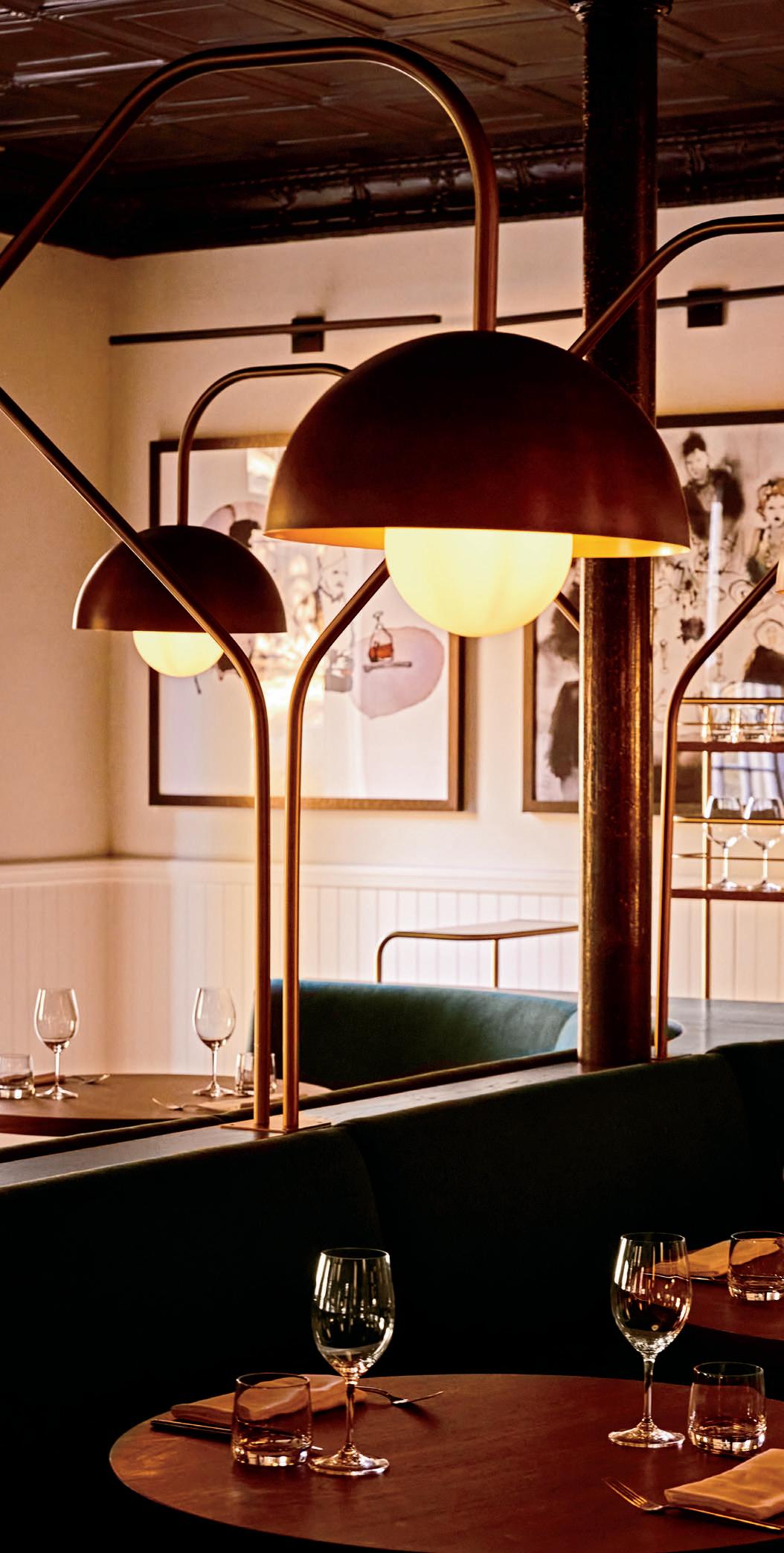
901 A STREET, SAN RAFAEL
www.ildavide.net
In 1995 owner David Haydon opened Il Davide (pronounced “Dah-Vee-Deh”) determined to put his own spin on the classic Toscano-style restaurants he was used to. The result is a casual Italian restaurant boasting locally sourced favorites like balsamic/zinfandel–braised short ribs, chicken parmigiana, sautéed sea scallops, lamb and fisherman’s stews, and house-made pastas.

Insalata’s
120 SIR FRANCIS DRAKE BOULEVARD, SAN ANSELMO
www.insalatas.com
The Mediterranean spirit is strong at this Bib Gourmand–awarded restaurant. Helmed by chef, owner and cookbook author Heidi Krahling, Insalata’s offers fresh and flavorful proteins, grains and greens. Dine in or pick up your favorites from the well-stocked takeout counter.
Masa’s Sushi
813 GRANT AVENUE, NOVATO
www.masanovato.com
Michelin-starred chef Takatoshi Toshi is bringing the flavors of his native Japan to Masa’s Sushi. From seasonal selections to numerous rolls and specialty small plates, expect immaculate presentations of delicious fare in an unpretentious atmosphere.
2165 FRANCISCO BOULEVARD E, UNIT C, SAN RAFAEL
www.sankorean.com
Korean native Monica Chang is serving up nutritious foods that don’t sacrifice taste or authenticity at SANkorean Kitchen. Try the kimchi fried rice breakfast burrito, and don’t leave without purchasing a jar of the cafe’s very own ssamjang dip.
SulaInspired by the iconic brasseries of La Rive Gauche, Petite Left Bank (www.petiteleftbanktiburon.com) has created a chic-yet-lively Parisian getaway in downtown Tiburon. Like its sister restaurant in Larkspur, this traditional cafe and bistro showcases classic French recipes through flavorful
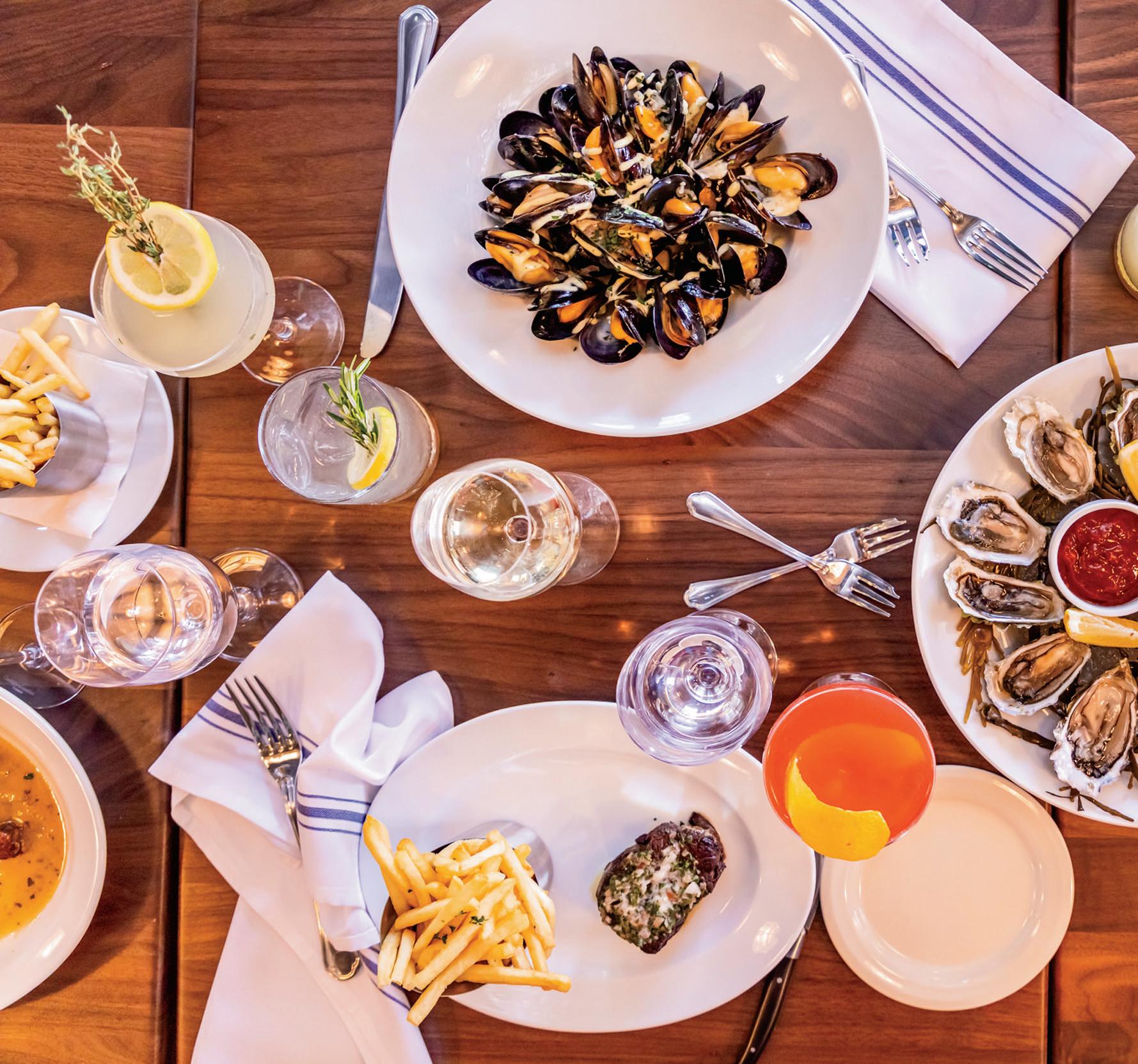
handcrafted dishes; start with escargot en croûte and savor the boeuf bourguignon for an entree, but make sure to leave room for scrumptious sides and a decadent dessert. From hand-selected domestic and imported wines to artisan craft cocktails, there are libations aplenty, but for those
looking for spirit-free beverages, you can also sip on zero-proof cocktails and refreshers as well as CBD sparkling water. Petite Left Bank is in the weekend brunch game, too, offering options like omelets, lobster Benedict and apple bread pudding French toast. 1696 Tiburon Boulevard, Tiburon
221 SHORELINE HIGHWAY, MILL VALLEY www.shorelinecoffeeshop.com
This retro-inspired diner in Tam Junction complete with counter-top service offers an easy breakfast/lunch menu of buttermilk pancakes, egg dishes and breakfast sandwiches, salads, tacos and tostadas, wraps and burgers, even a soup and grilled cheese combo — it doesn’t get any more comforting than that.
Spud Point Crab Company
1910 WESTSHORE ROAD, BODEGA BAY www.spudpointcrabco.com
Located on the west side of the Bodega Harbor in Bodega Bay, this crab shack offers outdoor seating only and attracts long lines for its mouth-watering “Carol’s Famous Clam Chowder” (in both white and red), seafood sandwiches, crabcakes and seafood cocktails. When they warn that the clam chowder can be addicting, they really aren’t kidding.
The Marshall Store
19225 HIGHWAY 1, MARSHALL www.themarshallstore.com
A great place to stop as you meander along Highway 1, the Marshall Store serves up views of Tomales Bay and sandwiches made with the store’s own bread (check out the bakery in Tomales), local seafood, house-smoked meats, hot soups, local cheese and, of course, oysters, all harvested from the store’s own Tomales Bay Oyster Company farm.
The State Room
1132 FOURTH STREET, SAN RAFAEL www.stateroombrewery.com
This hip, family-friendly gastropub is known for its draft beers (all brewed on site), but the State Room also has a menu that defies expectations. Share elevated small plates, tackle their halfpound burger or try a wood-fired pizza.
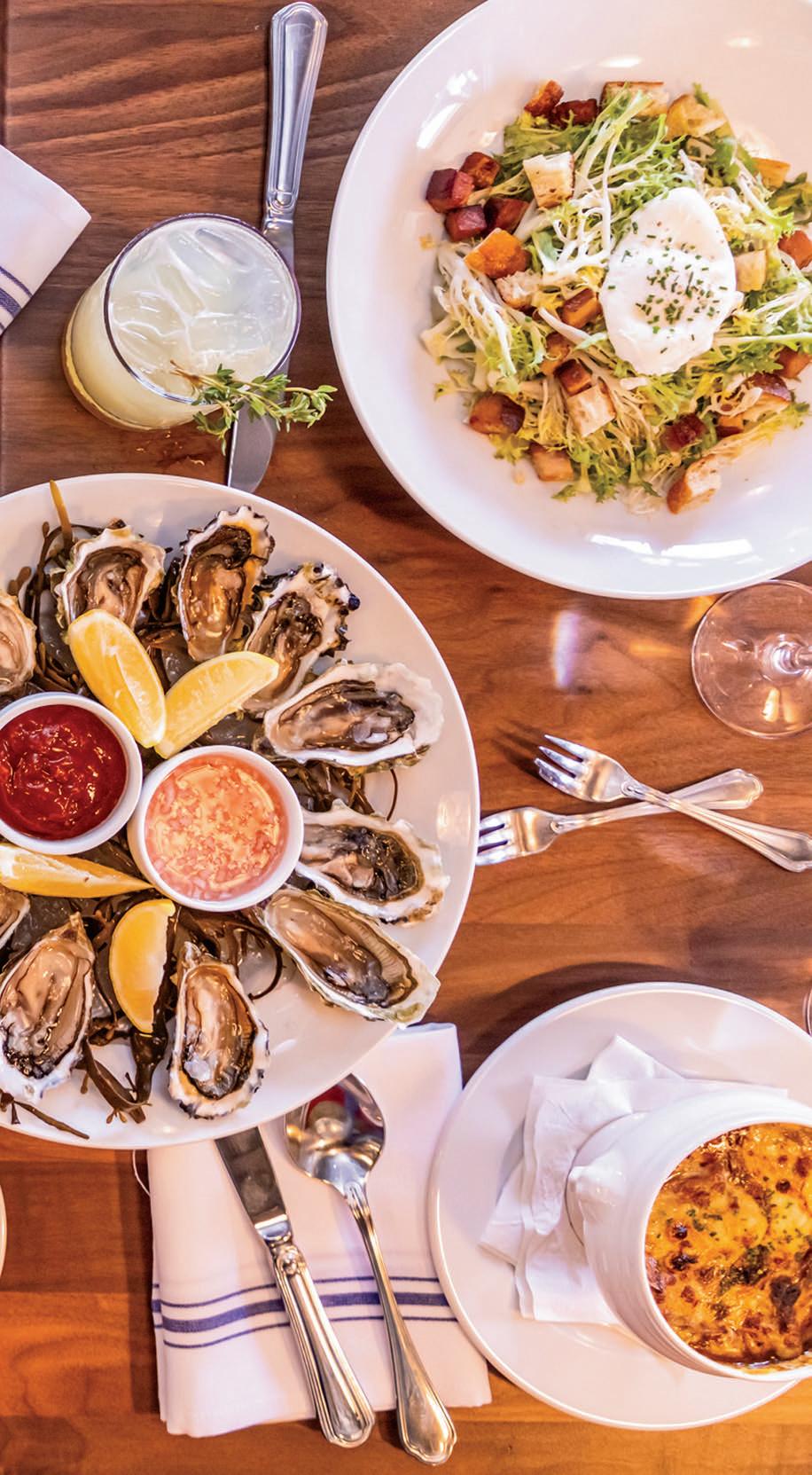
Village Sake
19 BOLINAS ROAD, FAIRFAX www.villagesake.com
Inspired by Japanese pubs, Village Sake offers an extensive menu of traditional izakaya fare you won’t find elsewhere. Order a bottle of sake and settle in to experience Michelin-starred executive chef Scott Whitman’s culinary magic.
Petite Left BankWe hope you’ve had a chance to visit our premier 4,000-square-foot Healthstyle Galleria in Marin to enjoy massage, acupuncture, custom programs for weight loss, pain relief and so much more. Walk down the grand hall and you might see first responders. We delivered over 1,000 treatments for pain and stress relief to them last year and we can help you, too. Our documented success rates are tremendous. To meet rising demand, we opened an additional, private location in El Dorado Hills. It’s a high honor to care for you and those who commit their lives to caring for us.
9 CORNERS Med-Cryo-Spa
www.9corners.com | 415.209.9600
Marin County ~ El Dorado Hills
The Golden Gate Group (previously The Marin Group) is the number one team at Golden Gate Sotheby’s International Realty and consistently ranks among the Top 100 Agents worldwide. With a deep understanding of the San Francisco and Marin County housing markets, their team delivers exceptional results for buyers and sellers alike. From luxury properties to starter homes, the Golden Gate Group has a proven track record of success and a commitment to excellence. Trust them to handle all of your real estate needs with expertise and integrity.
The Golden Gate Group: Susan Hewitt, C.J. Nakagawa + Team 415.407.8349


team@themaringroup.com
www.themaringroup.com
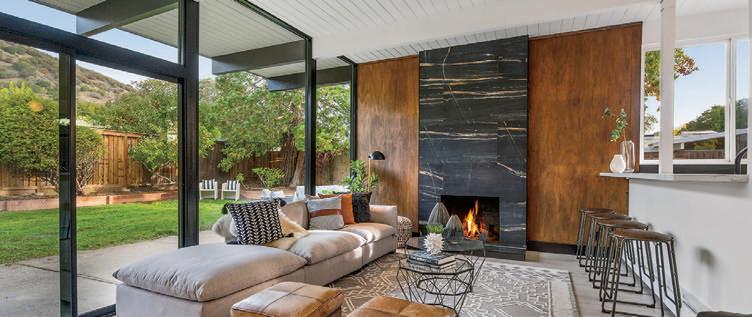
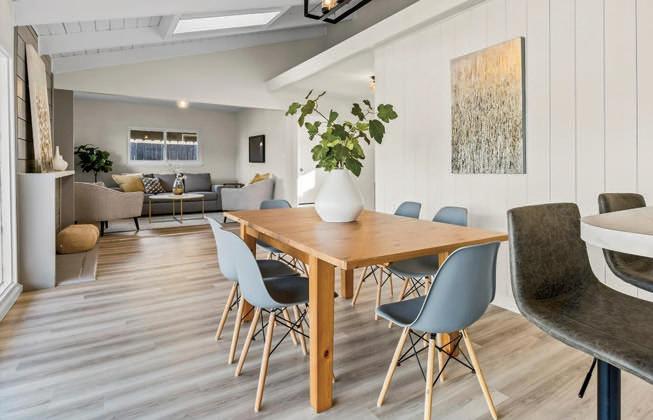
March is the begining of spring and it’s the perfect time to think about sprucing up your property, both inside and out. Whether you want to make improvements, are ready to sell or you’re looking for a new residence that speaks to your design aesthetic, we are showcasing individuals and businesses that offer outstanding expertise in all of these areas. Meet Marin’s outstanding providers of architecture, landscaping, home design and real estate solutions.

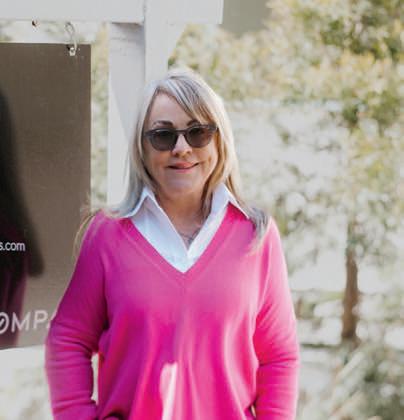
The Golden Gate Group
Let this mutigenerational real estate team help you achieve stellar results.

What is it about your team that make you a great choice for clients?
Our top priority is to increase our clients’ return on their real estate investment. Whether it’s selling your property for the highest dollar possible or looking for a new residence that speaks to your design aesthetics and growing needs, we are here to offer our expertise. As industry leaders and the No. 1 team at Golden Gate Sotheby’s International Realty for two years in a row, few agents assist more people to achieve their real estate goals than we do. With nearly 20 percent of all sales taking place off-market, reach out today so you don’t miss out on your next home.
What sets your approach apart when it comes to buying and selling property?
We take the time to educate clients and help them stage and improve the property for targeted market positioning. This leads to a strong ROI. For buyers, we have an incredible arsenal of contacts and service providers who can help transform and add value to their new home. For sellers, we are deeply-involved and help them easily manage an otherwise stressful process.
What new services do you offer clients?
We offer interior design, landscape design and staging ideas at no cost to our clients. We are affiliated with the best design teams in Marin County and San Francisco. Our roster is full of designers, landscapers, architects, stagers, handymen and other tradespeople.
The Golden Gate Group: Susan Hewitt, C.J. Nakagawa + Team 415.407.8349 team@themaringroup.com www.themaringroup.com


Let these flooring experts put their decades of experience to work for you.
What do you want people to know about your business?
We are your locally owned and family operated flooring store that’s part of the largest nationwide flooring co-op, Carpet One. This gives us access to all the finest carpets and flooring as the S.F. design centers but without the hassles and costs of a trip to the city, and with the pricing and warranties afforded through our co-op.
What new products in interior design do you offer clients?
Outdoor living is huge in Marin, people are extending their living spaces and we have the most beautiful indoor/ outdoor rugs, waterproof hardwoods and natural flooring products to enhance your home. Our website offers a room visualizer feature where clients can upload a photo of their room and see what different flooring will look like in their space. We also offer personalized service from home visits to help in the design process all the way through the final installation.
What is it about your team that makes it a great choice for clients?
Our designers and installation staff are the people in your neighborhood. Along with serving Marin County for the last 30 years, we live here, too. Our knowledgeable team stays up to date on all the latest flooring products, trends and installation techniques.



City Carpets
555 Francisco Boulevard, East San Rafael, CA 94901 415.726.2882 | leigh@city-carpets.com www.city-carpets.com
/@citycarpetsc1 | /CityCarpets
CSL #746886
What is it about your team that makes it a great choice for clients?
We have four decades of experience and a six-person, full-time team so no stone is unturned, no detail is missed and no mistakes are made. There is no substitute for experience, longevity and connections.



What new services do you offer?
We have a full-time project designer and a marketing team who stay on top of all things home design. We give our sellers options and have dozens of “before and after” photographs from previous makeovers to give them ideas of what can be done within their budget. Furthermore, we guide them on what projects will give them the best
return on their investment. We are the only organization that offers interestfree funds for improvements that are not due until the close of escrow. As an alternative, we can market a home and get top dollar when sellers need to sell “as-is.” We do this by creating custom design plans/ideas to show potential buyers.
How are you addressing new design trends?
Since the pandemic, the demand for flex spaces is huge. We stage or offer design ideas to maximize the flexibility of each home, often including reaching out to our favorite architect to draw some options and inspiration for buyers.
This agent has a plan to maximize your real estate investment.
What is it about you that makes you a great choice for clients?
I think outside the box. Markets change, each home is unique and each buyer or seller will have their own goals. I will always create a plan, but I am nimble and will adjust that plan for each nuance.
What sets your design approach apart when it comes to improving or staging property?



There is no one design approach, each home is unique. I like the style of architecture to dictate the design. My father was an architect and I think design is baked into my DNA. I can walk into a home and know what can be done to maximize value — and the key is value. I will only suggest an upgrade if I think my client will achieve at least $2 for every $1 they spend. I’m also not opposed to walking into a home and say “do nothing.” I just don’t take a cookie-cutter approach.
How are you addressing some of the new design trends?
I am so excited about the new trends; here are the ones I am most excited about: color is making a comeback from the grey and white pallet we have lived with; rich wood paired with a hard surface such as marble or Caesarstone is back in style; outdoors we are seeing low-maintenance, low-water landscapes with use of native plants and succulents.
Allison Salzerallison.salzer@compass.com
415.297.2110
www.allisonsalzer.com | DRE #01978463
How are you addressing some of the new design trends?
We work with top-notch stagers, designers and architects that help us keep on top of the ever-changing trends so we always present current ideas to our clients.
What is it about your team that makes it a great choice for clients?
We are a great choice as we have over four decades of experience between us in the real estate industry. We also both happen to be third-generation Marin residents with deep roots and extensive knowledge of all of the unique Marin
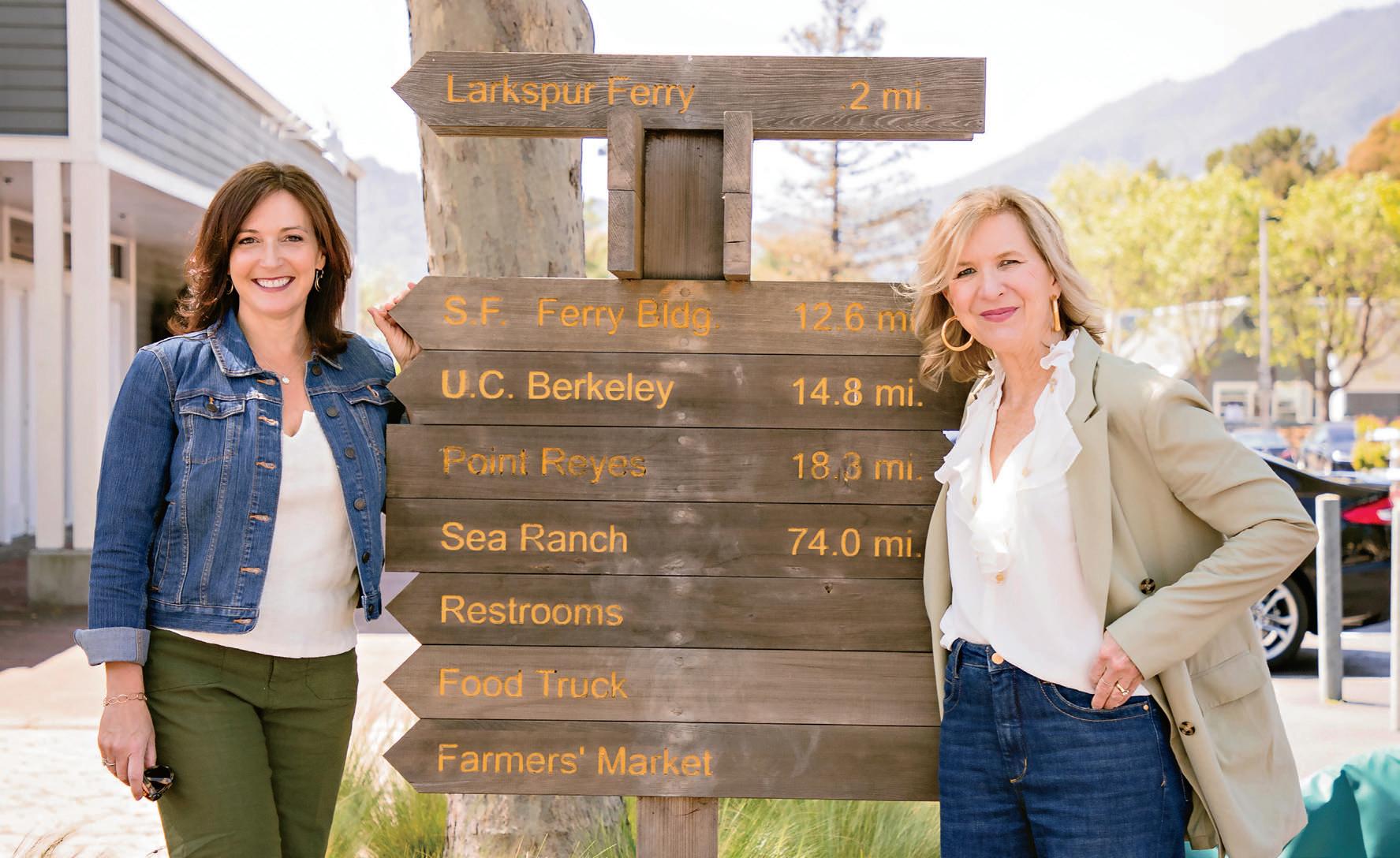
neighborhoods. We really enjoy being able to guide our clients in taking their next steps in real estate and thrive on the connections we make as well as the life-long friendships. We are truly fortunate to love what we do while making a difference.
Does your team have a notable history in the Bay Area?
Both of us are third-generation Marinites and even better, thirdand fourth-generation construction families. Our grandparents commuted from Marin to San Francisco before the Golden Gate Bridge was built.


What makes your team a great choice for clients?
At Garvey|Simon, we believe in the transformative power of art and inclusivity. Sisters Liz and Catherine joined forces to provide an approachable entry point into the world of fine art and collecting. With over 30 years experience, Garvey|Simon is armed with the knowledge and expertise to educate and guide clients on their art journeys. Our San Anselmo location hosts rotating exhibitions featuring established and emerging artists and also offers personalized art advisory.

What sets our design approach apart when improving property?
We help individuals define their aesthetic and then offer a launching place that is aligned with their goals. During the process, tastes are refined further and a collection takes form.
In addition to our rotating exhibitions and advisory services, we also curate art experiences for individuals or small groups. Our commitment to inclusivity in the arts has brought educational and immersive workshops to correctional facilities and other institutions where creativity and care can heal and elevate. People thrive where art is thoughtfully incorporated. And remember: our space is also available to rent for a private event.
What is it about your team that makes it a great choice for clients?
No one person can do it all. We are lucky to have a team of professionals who possess a wide range of experience. Some bring a deep understanding of construction methods, others contribute innovative design solutions, or have a detailed understanding of codes and know who to talk to at every agency.
What sets your approach apart?
The diverse experience of our team leads to an intense exchange of ideas, a meticulous search for solutions and an innovative approach to design. We always give our clients design options and carefully talk through the pros and

cons of each. Not only does this allow us to explore the possibilities of their unique site, but it also helps us get to know our clients more intimately and allows them to think more deeply about their own needs and wants.
What new services do you offer?
At our free, initial consultation we confirm the jurisdiction and all related zoning information. We educate ourselves about the location and size of property, the slope, adjacencies as well as size of house, if existing, and applicable zoning codes. We come fully prepared to address the clients’ needs and concerns, and to help them make their vision a reality.
Bernadette’s Workshop
Hand-painted pieces that reflect the peace and beauty around us.

What is it about you that makes you a great choice for clients?

Hand-painted porcelain refined homes in Europe and Asia for centuries. I trained as a painter in the renowned porcelain manufacture of Herend, but I have been settled in Marin for 25 years. I like to capture the magic of nature in my work. My pieces feature local plants and animals. They are designed to be understated but unique and detailed in ways that only handmade pieces are.
What sets your design approach apart?
Many people choose to live in Marin because they have fallen in love with its natural beauty. I live in Marin for this
reason, and I try to capture this beauty on the pieces I make. Marin’s beauty is rarely grandiose, it is often small: ferns that furl just the right way or wildflowers that disappear in a few days. My porcelain pieces attempt to capture these fleeting moments of splendor.
What new products do you offer clients?
I offer porcelain plates, cups, saucers, vases, lamps, etc. that can be decorated according to the clients’ wishes adding a distinctive ingredient to any home. No two pieces are ever the same, so you get something that is truly you. I invite you to come by the studio to watch me work.


A unique approach to staging and improving a home’s value.
What sets your design approach apart when it comes to improving or staging property?

Sellers often find themselves suddenly needing to make necessary decisions with home improvement upgrades. Besides staging, we take the design approach a step further by offering experienced knowledge in selecting finishes such as paint, flooring and fixtures. We also offer home organizing services that can go hand-in-hand, especially when moving homes. Owner, Darcy Shell’s visual communications degree and 20-plus-years’ experience in design is useful — knowing what works best for resale value and offering pre-stage consults and creative design strategies.
In our next issue, Marin Living spotlights businesses, services and products that offer the perfect summer solutions for all tastes. Our April advertorial feature provides readers with a wide scope of warm weather solutions. Whether they’re looking to sell or buy a home, find experts to spruce up their property, connect with beauty professionals or discover a new vacation destination, we’ve got it covered. Showcase your business with an advertorial profile that highlights what makes you and your business the best solution for the summer season. Marin Living will enhance your exposure with a linked sponsored article on our website for one year, newsletter promotion to approximately 15,000 opted-in subscribers and social media posts.
 Luisa McGinnis Senior Recruiter Jackson Family Wines
Sylvia Bonilla Zizumbo, CPCC, ACC Career & Leadership Coach Gallup Strengths Coach
Luisa McGinnis Senior Recruiter Jackson Family Wines
Sylvia Bonilla Zizumbo, CPCC, ACC Career & Leadership Coach Gallup Strengths Coach


What are you doing for dinner tonight?

Dee Coleman, of Marin-based Dee’s Organic, is standing by to be your personal chef for daily or weekly meals that will satisfy the whole family. “I love designing menus for my clients that will provide a delicious meal or gracefully complete an event,” Dee says. “I want you to always remember the food.” A Black-owned family business, Dee wants to bring her family traditions to your table.



From elevated epicurean farm stays to a new home for a beloved Marin food company to increasing biodiversity, spring offers many reasons celebrate the season.
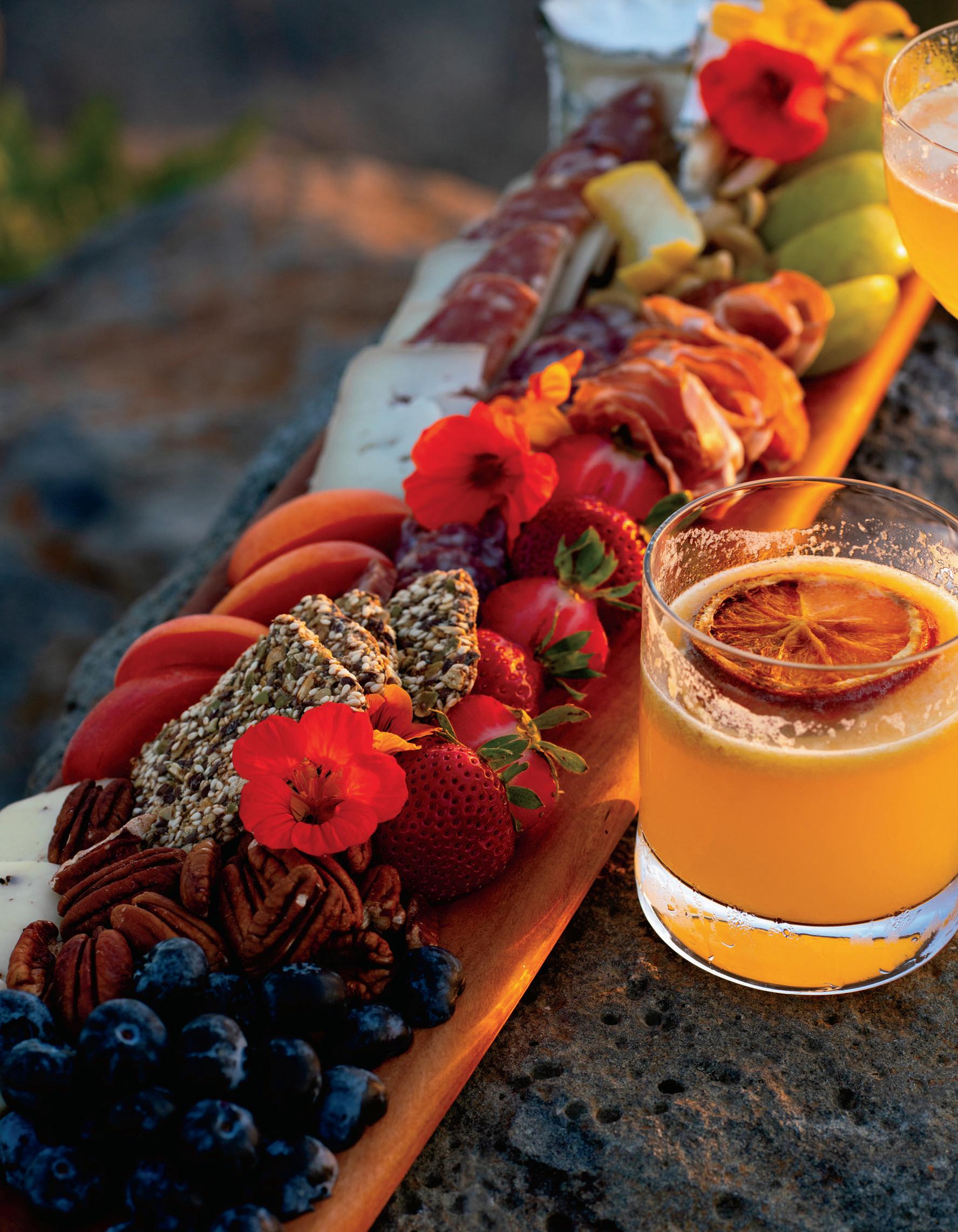

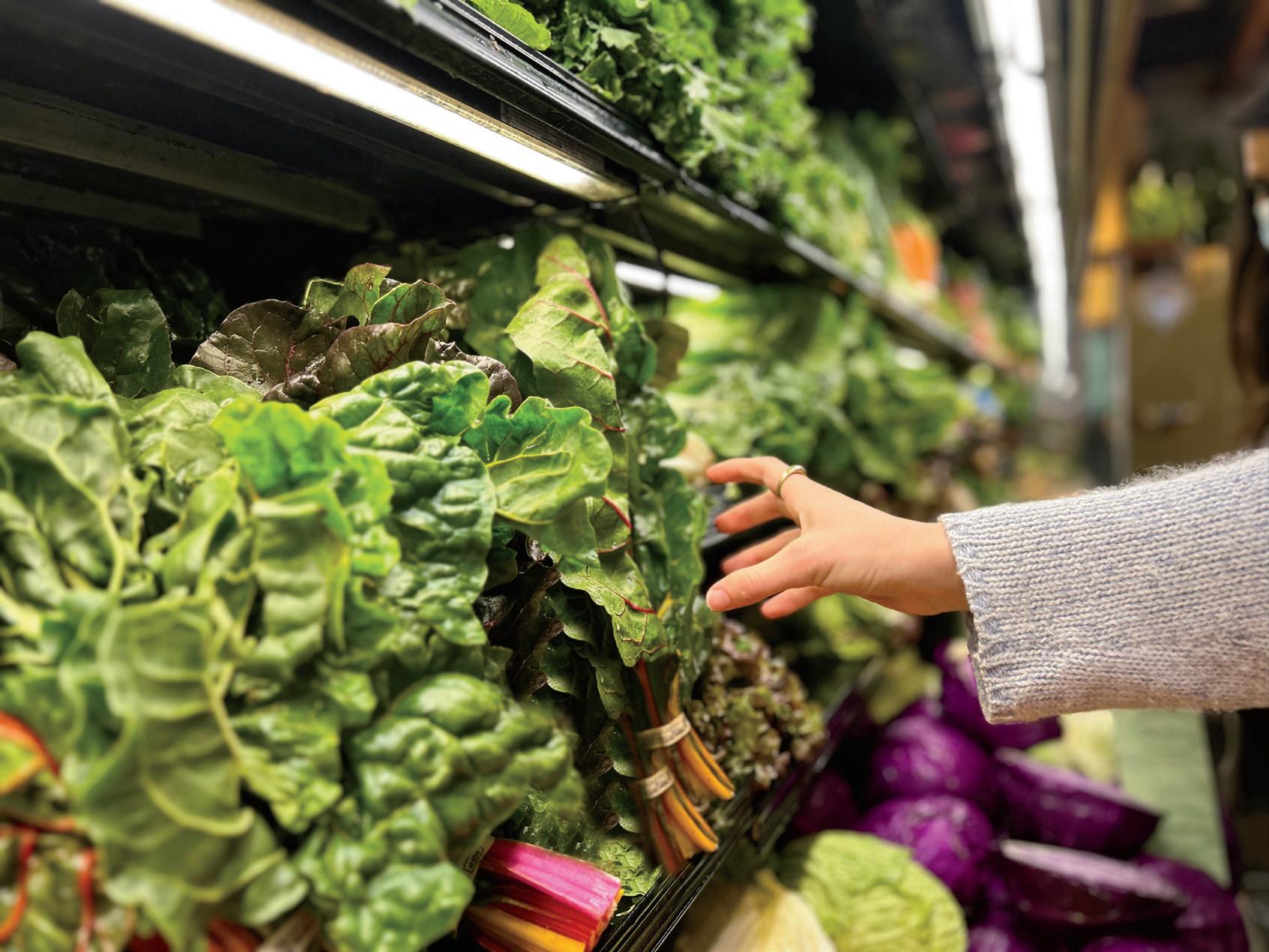




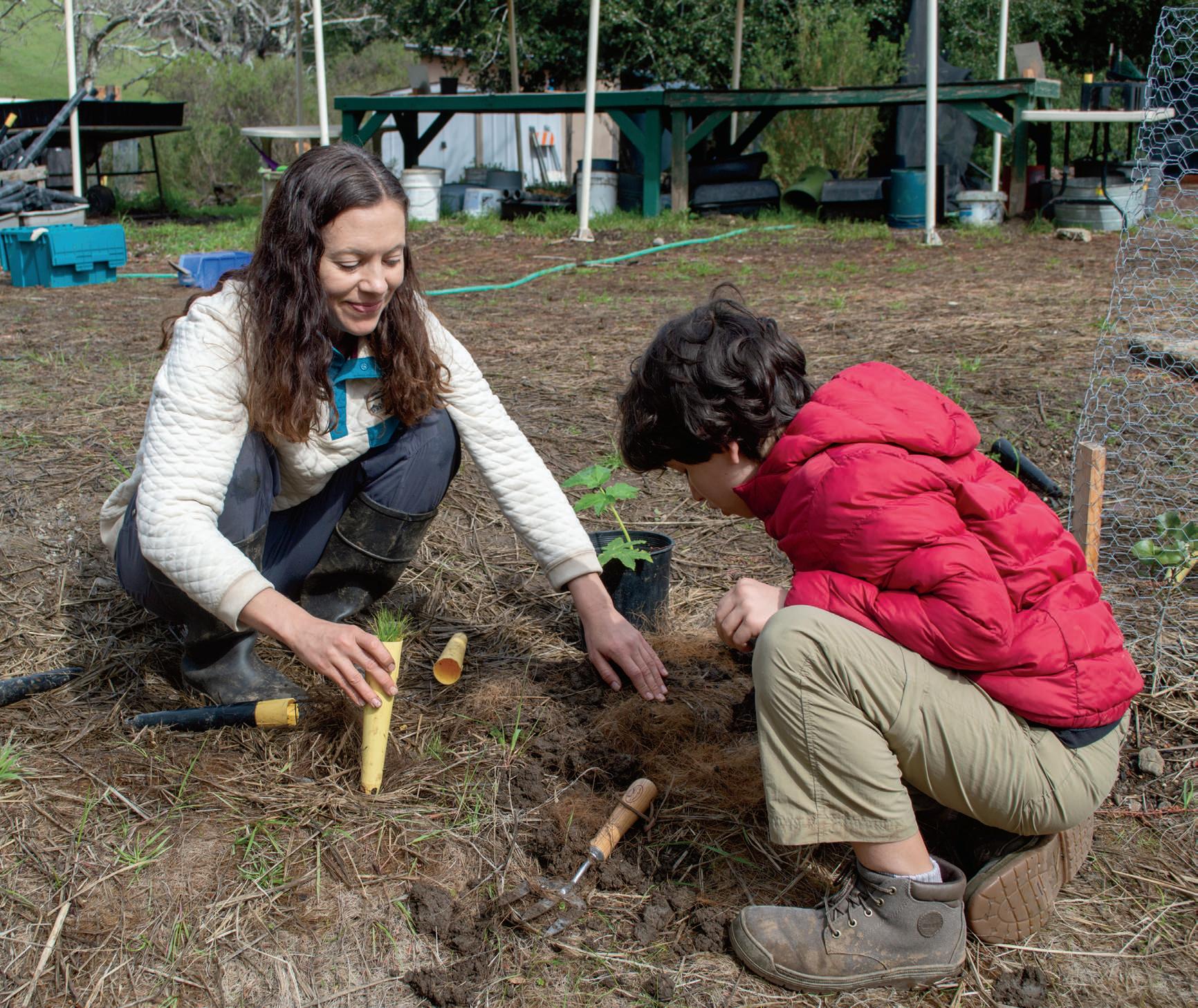 By Joseph Knelman
By Joseph Knelman
WITH RECENT RAINS, one of the southernmost wild populations of coho salmon return from the ocean to their natal streams in West Marin. As the coho salmon population has seen staggering declines over time, local organizations including Olema’s Turtle Island Restoration Network (www. seaturtles.org) are leading efforts to restore vital habitat via the Salmon Protection and Watershed Network (SPAWN). “Our organization has been focusing on doing hands-on restoration out in West Marin, making sure that this critical
habitat is restored and has a chance to come back,” says Scott Webb, Turtle Island’s advocacy and policy director. “If we can do that in Marin, it’s a great example for the state, if not the world.”
Indeed, this past December, Webb brought observations and insight from local Marin projects to the world, participating in the United Nations Biodiversity Conference (COP15) in Montreal. Though the United States is not an official signatory at the conference, California attended
as a subnational observer delegation, influencing but not ratifying the agreement that assembled some 190 nations together to take action on the urgent need to protect rapidly declining levels of biodiversity worldwide. As a member of the California delegation Webb had the opportunity to connect with participants and speak at a roundtable discussion during the formulation of conservation targets.
Of the 23 targets established at the conference, the “30x30” target sits at the center of the COP15 agreement, stipulating that 30 percent of land and sea be protected by the year 2030. Webb’s participation in the conference emphasized the realization that international targets will ultimately be implemented by local communities. “There is a gap there,” says Webb, stressing the importance of making sure folks on the ground are connected to the goals that come out of the conference.
Nonetheless, the new COP15 targets can help to empower state- and local-level efforts. “I think it’s pretty exciting, California taking this leadership. For us it’s nice to put the work we’ve been doing into actual boxes and targets,” says Webb.

“There is a lot of work that California has already done that fulfills some of this.”
Marin boasts a storied past in conservation connecting back to interactions among community members, government and environmental organizations to protect treasured locations and rare biodiversity, from the Headlands to Muir Woods. Now, COP15 provides a renewed call for Marin leaders to consider next steps in protecting the immense biodiversity that exists around the region. “Marin is a biodiversity hot spot, and we need to make sure that we at least try to implement these goals,” says Webb.
In working with global leaders to forge an effective plan for conserving the planet’s biodiversity, Webb found great joy and relevance in sharing things learned from home, Marin County, to inform the conference discussions. “I love this area so much; I’m just a Northern California kid. It felt so cool to wear that hat, represent Northern California, and show that we care, are trying, and have a lot of stuff that we are doing right,” Webb said. “Being an ambassador for California on the world stage was just a dream come true.”
Wild West Ferments’ new Point Reyes Station home is an exciting and meaningful expansion of both the brand and the new home’s legacy.
 By Caitlin Hamer
By Caitlin Hamer
FOR LUKE REGALBUTO AND MAGGIE BETH LEVINGER, taking Wild West Ferments (www.wildwestferments.com) to the next level didn’t mean a nationwide expansion; it meant putting down roots in the region they call home. And when a vacancy opened up in a prime Point Reyes Station location, it was a serendipitous fit for a business that had formed and blossomed in Marin.
From its inauspicious beginnings at local farmers markets to expanding into wholesale, creating a brick-and-mortar store was the logical next step. Though they’ve been operating out of a kitchen in Petaluma for the last several years, the husband-and-wife team are based in Point Reyes, and Levinger herself is from Inverness. So basing the business in West Marin, a region famous for agriculture, was an important goal. And it just so happens that their new location previously belonged to a local heavy hitter that’s served
as an inspiration for Regalbuto and Levinger: Cowgirl Creamery. By stepping into the cheese company’s former Barn Shop and Cantina, they’re ready to carve out their own place in West Marin’s food culture.

That’s not to say they haven’t already made a name for themselves. Wild West Ferments is well-loved for its probiotic-rich batches of sauerkraut, kimchi, pickles and fermented fruit sodas. Everything is made in line with the company’s guiding principles of quality and integrity, produced with organic, primarily locally grown ingredients and with no plastic involved. Thanks to their new building’s commercial kitchen, Wild West Ferments will be able to move production on-site, and the large space means that in addition to selling their products, they can offer fermentation and food preservation workshops there, too. This is an aspect they’re especially excited about — creating opportunities for concrete, experiential learning, giving people a chance to not just enjoy their food but connect to it as well.

“We’re hoping to create a place where people come to get inspired to learn something, to support a local producer and to eat something really delicious,” Regalbuto says. Levinger hopes they can create a regional food system hub: “Not just a place to come be a consumer, but to learn about the importance of regional and local agriculture and food production.”
For Regalbuto and Levinger, a thriving community doesn’t just come from people maintaining healthy diets, although that’s a huge part of it; it also means maintaining a functioning, nonindustrialized food system and really putting an emphasis on locally grown and made organic goods. In addition to preserving food, they’re trying to help preserve the local agricultural legacy. “It’s more resilient for a community to produce its own food,” says Regalbuto, adding that relying on national distribution systems isn’t foolproof, as evidenced by empty grocery store shelves seen during the pandemic. “A connection between the consumer and the farmer makes it easier for everyone to thrive.”
Though Wild West Ferments products can be found at a number of natural food stores in California, Regalbuto and Levinger are eager to do more business directly with customers at the new location. They’ll be the anchor tenant in the new building, but they’re looking forward to expanding the property’s impact by bringing in other local vendors to sell their own products.
“We’re hoping this space can act as an incubator and launch pad for people who might want to start producing food in our region, and highlight what’s already going on,” Levinger says, adding that Wild West Ferments should be open by summer. “The sky’s the limit, and there’s so much potential with the building and its location and all the strengths that already exist in the community.”
Three next-level farm stays offer eco-conscious luxury and unforgettable meals.
 By Casey Hatfield-Chiotti
By Casey Hatfield-Chiotti
The phrase “farm-to-table” is used so frequently that a culinary getaway with a farm hardly seems like a novel concept. Still, some hotels continue to push the idea of a sustainable farm stay further and in new directions by becoming true agrarian utopias where nearly everything guests devour is grown or raised on property (or nearby). And guests can truly get immersed in the pastoral setting. The perks that come with a stay at these stepped-up experiences might include meals consisting entirely of handmade pantry items from farm-grown ingredients, clean bath and body products made with propertygrown herbs and florals, and hikes through ranchland where prized Charolais cows graze. Here are three of the best — a Europeaninspired inn in Oregon Wine Country, a Georgian manor–style hotel in the English countryside with a Michelin Green star (earned by restaurants at the forefront of the industry when it comes to their sustainable practices), and a coastal ranch stay just a few hours north of Marin in Mendocino County.
Chef Matthew Lightner has worked everywhere from Mugaritz in Spain to the two-Michelin-starred Atera in NYC’s Tribeca, but he chose to open his dream project in Oregon’s Willamette Valley, just under an hour’s drive from downtown Portland. Lightner is chef and partner at ōkta, the restaurant that is part of the eight-suite Tributary Hotel (from $950 per night; www.tributaryhotel.com). Ōkta is a unit of measurement used to describe the amount of cloud cover and a fitting name for a restaurant in the heart of the mosscovered valley known for producing pinot noir. The restaurant’s soul, ōkta farm, is a 25-minute drive away on a picturesque hillside surrounded by vineyards. Before the restaurant and hotel design were complete, work had begun on the farm, where there’s a kitchen, lab, wood-fired bread oven and larder. All culinary essentials (oils, tamaris, dried spices) chefs use at the restaurant are created using local ingredients, like a fruity habanada vinegar made with sweet, farm-grown habanada peppers.

“I’ve always had an addiction to nature. I grew up in Nebraska. Books created a fire inside me to explore these things, so when I got the opportunity to be in Oregon and go to the ocean and forage, I had a heightened sense of appreciation for it,” says Lightner, who also worked at Portland’s Castagna.
Dinner at ōkta is a feast for the senses. The sleek restaurant has a bustling open kitchen and furniture and fixtures by Portland artisans, such as sculpted sconces made by ceramicist Lilith Rocket that cast a warm glow over the dining room. Dinner is composed of 14 to 15 bites such as a black truffle tart with Butterbloom cheese and caviar with blue kuri squash and coconut milk curry. Depending on the season, Lightner says, 20 to 90 percent of ingredients used for the menu come from the farm. The duck, purple sweet potato and spigarello dish I sampled during my visit is an example of meticulous sourcing. A local farmer raised the free-range duck specifically for the restaurant, and chefs lacquered the ōkta farm-grown purple sweet potato with a molasses-y type syrup made in the lab by inoculating local purple barley with koji.
Guests of the inn, where suites are named for Oregon river tributaries, get to experience luxurious accommodations with fireplaces and large spa-like bathrooms and indulge in what can only be described as a lavish continental breakfast (included in the room rate). More than half a dozen dishes are wheeled to guest rooms on a cart and arranged on a coffee table and can include sourdough bread, pain au chocolate and a salad with sweet peppers and turnips in an herby sauce. It’s a cuisine inspired by the region and in a class of its own. “It’s not for us, ‘this is Japanese,’ ” says Lightner when asked how he would describe the cuisine at ōkta. “This is what we want to cook with the ingredients that inspire us.”
Heckfield Place (from $559 per night; www.heckfieldplace. com), opened in Hampshire, about an hour southwest of London, in 2018 as an ambitious country house hotel meets farm stay, has continued taking regenerative hospitality to new heights. The 400-acre-plus property’s organic farm achieved biodynamic certification in 2021 (it’s considered the U.K.’s first biodynamic hotel). Growers use only natural fertilizers in order to build rather than deplete the soil, and provide ingredients for the house whenever possible, from flowers to vegetables, dairy to honey. Heckfield Place farmers raise livestock like Guernsey cows and British Saddleback pigs and grow a vast array of herbs and heirloom fruits and vegetables, flowers and trees in its seven greenhouses and gardens — the walled garden has trees planted in the 19th century by pioneering horticulturist William Wildsmith. Heckfield Place has so much fabulous produce it sometimes hosts markets that are open to the public.
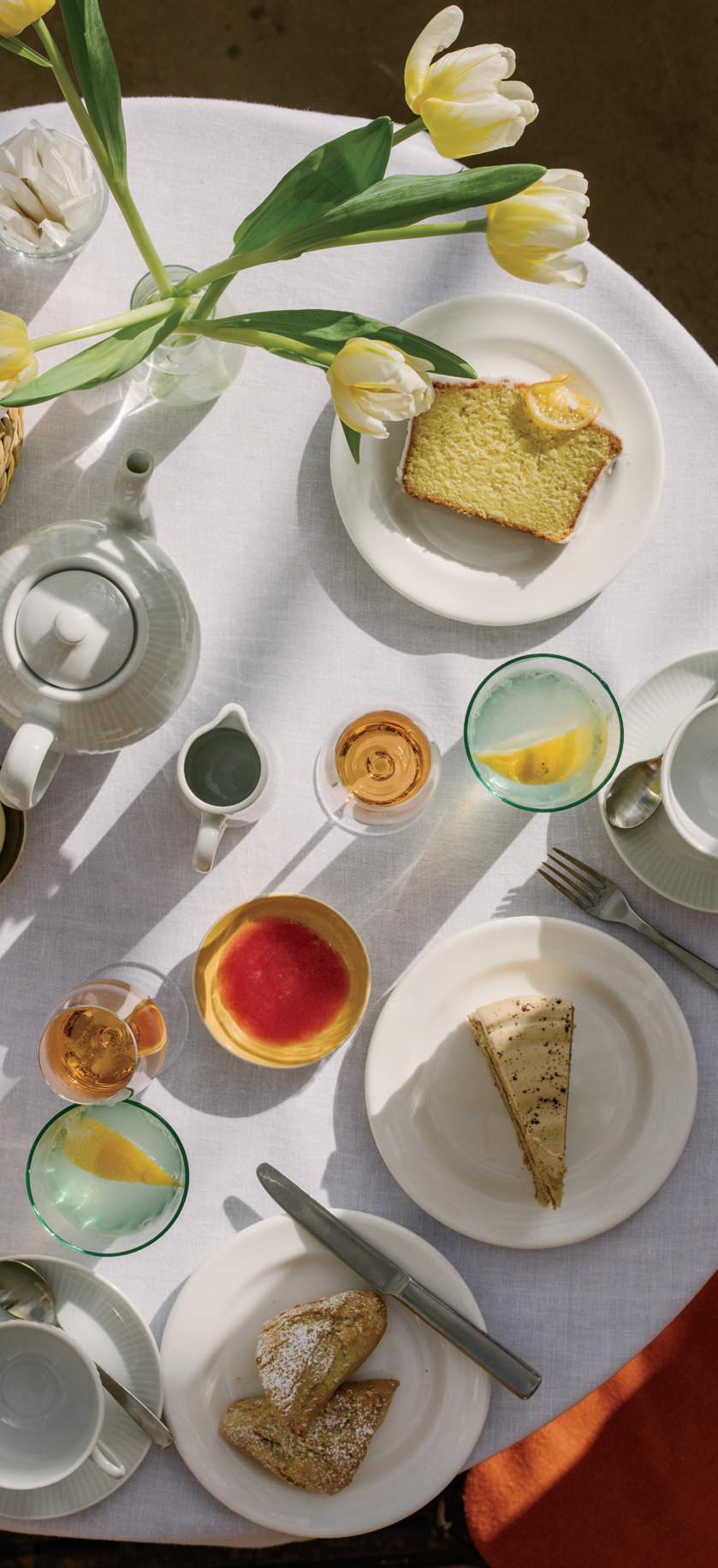
Award-winning chef Skye Gyngell runs the “root-to-plate” culinary program. Gyngell and executive chef Michael Chapman’s efforts were rewarded with a Green Michelin Star for sustainable dining at the restaurant Marle.
Farm-grown-and-raised ingredients shine in dishes like Heckfield lamb with roasted beetroot and sauce vert and beef carpaccio with poached baby farm leeks. At Hearth, located in the estate’s former stables, most dishes are cooked over open flame, and at Moon Bar, cocktails are inspired by lunar phases.
Guest rooms — resembling rooms in the most refined farmhouses — feature natural materials like Georgian timber furniture, handmade ceramic lamps, and raw linen and wool fabrics.
Heckfield Place also produces bath and beauty products on the estate from farm-grown ingredients, and the sustainable Bothy Spa will open later this year. The hotel’s wellness program, Farm Fit, challenges guests with circuit training using ropes, hay bales, logs and weighted milk churns. Everything gets reused at Heckfield Place.
California ranch living and cuisine are alive and well at the Inn at Newport Ranch (from $650 per night; www.theinnatnewportranch.com), a luxurious nine-room inn and 2,000-acre working cattle ranch along a rugged stretch of Mendocino coastline in Fort Bragg. The ranch’s seven microclimates offer abundant foraging opportunities. New executive chef Patrick Meany, who has worked with Thomas Keller and recently completed a stint at twoMichelin-starred Harbor House Inn in Elk, is rolling out a new sustainable culinary program, which will include foraging tours throughout the year. This spring, guests will be able to search for fiddlehead ferns and California nutmeg, and Meany, who has been known to make kombucha from Douglas fir and wild honey, will cook up a gourmet dinner, including some of your own finds. When the stormy weather sets in in the fall, guests should pack rain boots for a guided mushroom foraging
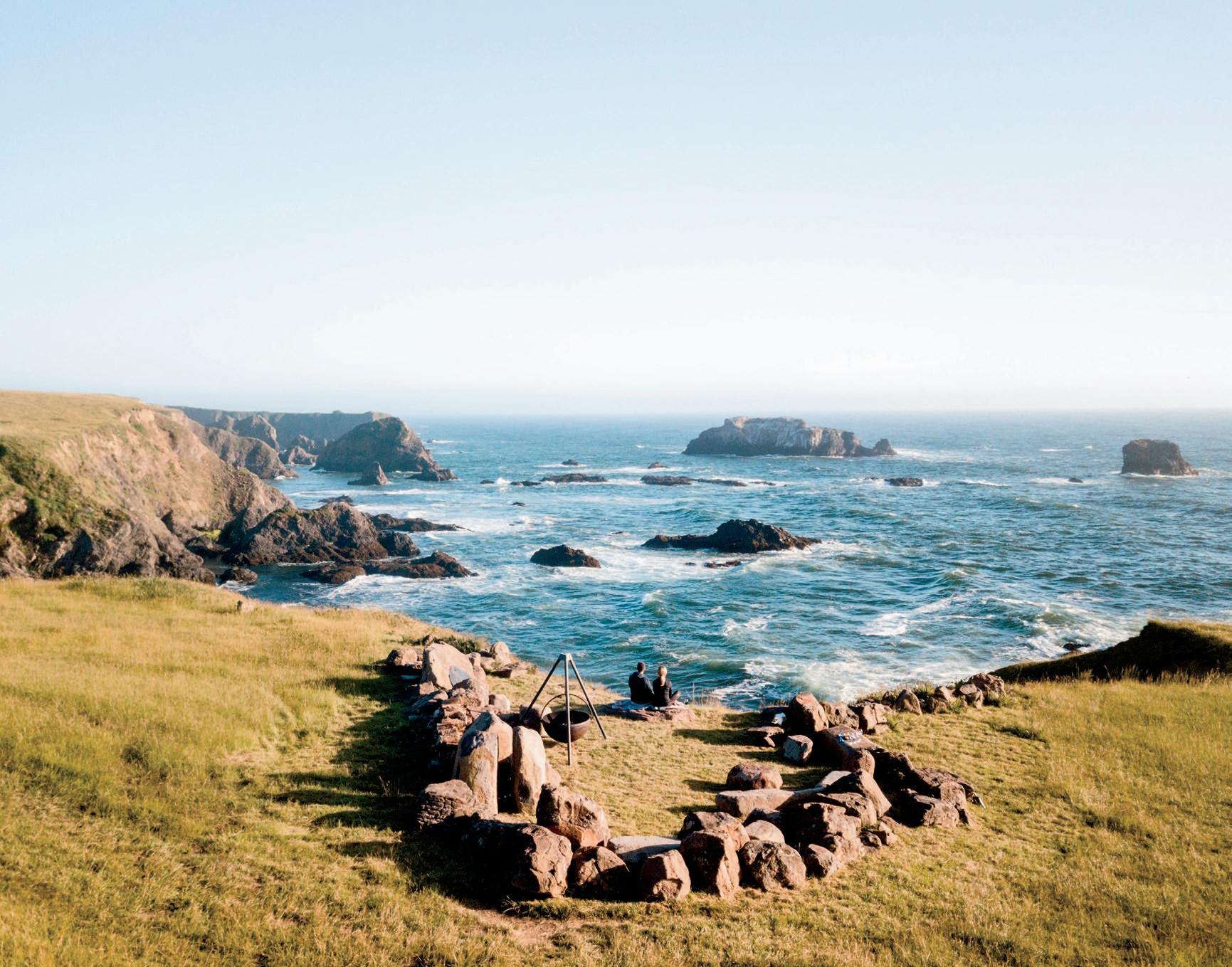
excursion. The Inn at Newport Ranch has a mushroom farm surrounded by redwood forests. Deeply committed to being stewards of the land, management plants at least one redwood tree per guest.

Meany’s elevated ranch-style cuisine includes a different three-course menu each night featuring local ingredients like the ranch’s own Angus and Charolais beef cooked over a live fire fueled with alder, fir or apple wood. The inn also has several bountiful hilltop kitchen gardens filled with plump squash, bright berries, brassicas, alliums and herbs (depending on the season). About half of the accommodations have full kitchens and outdoor grills, including the Newport Suite, which has redwood trunk columns supporting the high ceilings. The ranch-style breakfast — served in a wood-paneled room with views of the blue-green sea — featuring thick-cut bacon and fresh-baked pastries provides sustenance for full days exploring the area, including the ranch’s 20 miles of hiking trails, wineries, beaches and a large section of the Cannabis Trail. Often overlooked Mendocino County has it all.
way.
Meet Joy Chopra, a San Francisco Bay Area native, who is in the tech world by profession but her heart and passion lies in discovering the city’s trendiest restaurants, cocktail bars, hotels and jazz clubs. Follow her foodiethemed Instagram @dinewithjoy for her recommendations and reach out to her if you are interested in a bespoke dining experience at some of the hottest restaurants in the city.

The first two followers to follow and message will get a special offer at Afici.


@dinewithjoy

@joychopra dinewithjoy


Teamwork
Amplifies our experience, knowledge and strengths to provide luxury service at all price points.
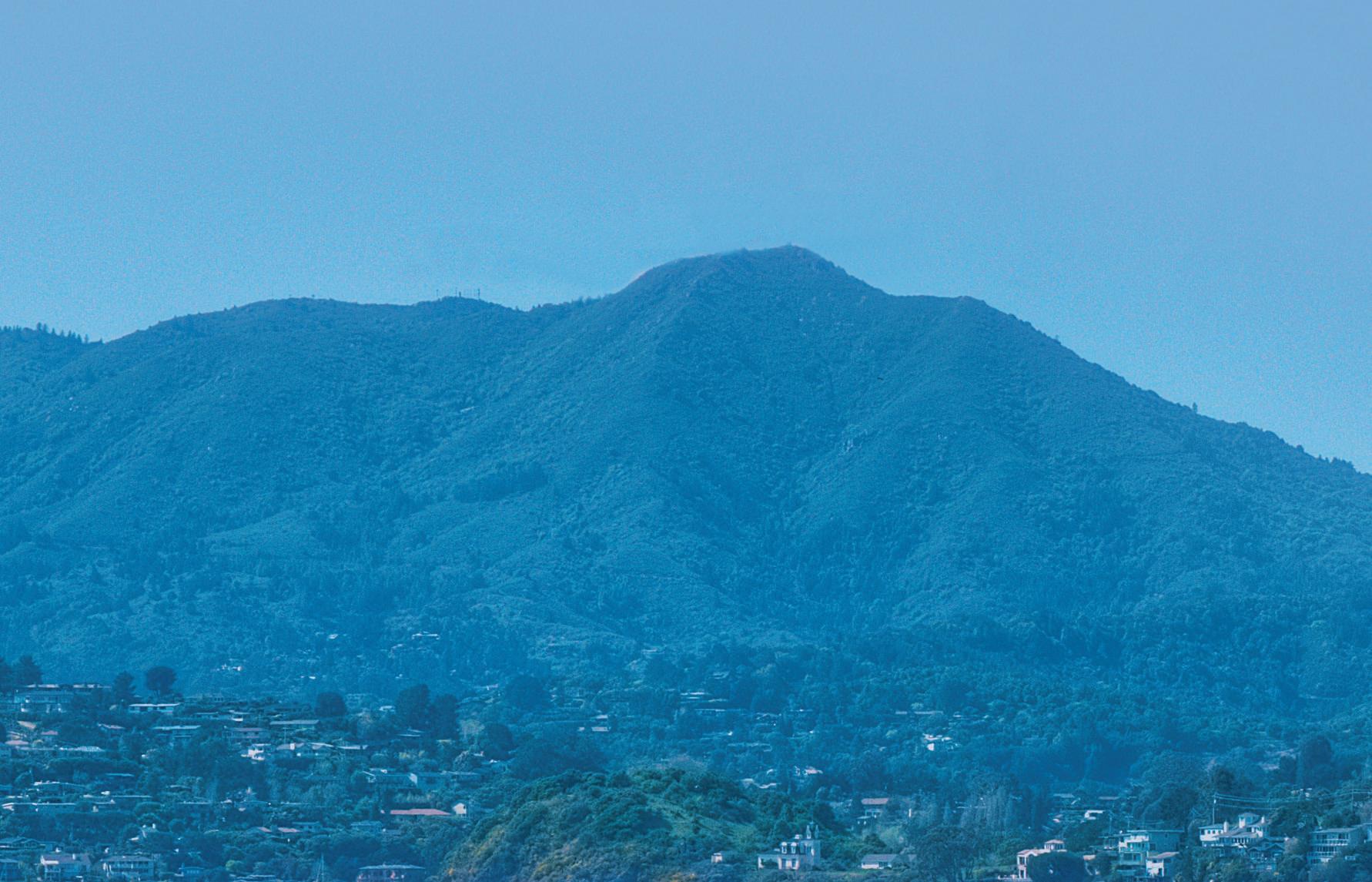

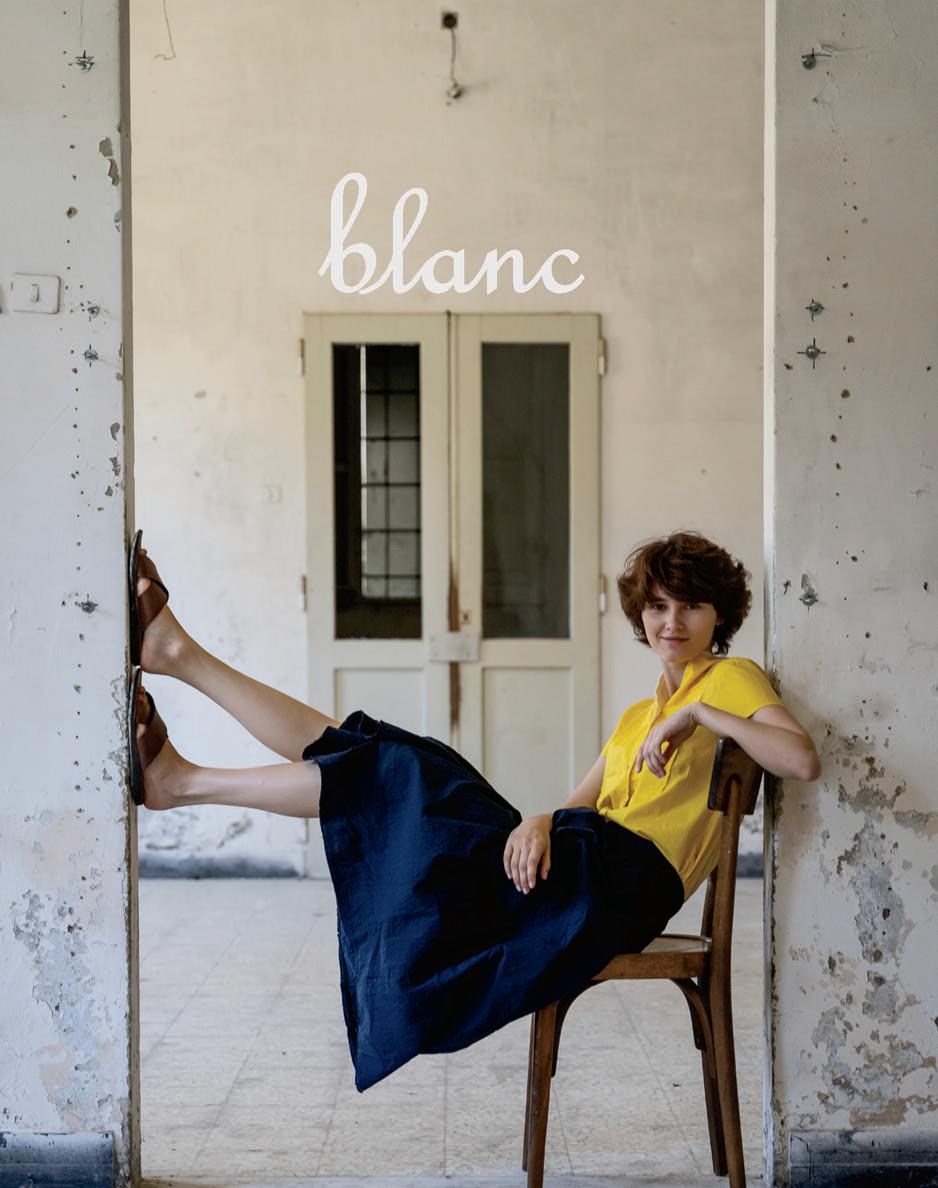
The most of everything! Friendly, knowledgeable, thorough, and responsive. There when you need them, and always professional. The whole team is terrific!

Coleman making lunches at the College of Marin kitchen
WHEN DOLORES “DEE” COLEMAN, a classically trained chef who has been cooking for 25 years, emerged from the pandemic, she and her catering company, Dee’s Organic (www.deesorganic.com), were presented with an interesting offer — to make healthy lunches for her son’s school, Marin Primary and Middle School. But that meant that Coleman had to keep on her toes.“My son eats the lunches almost every day and sometimes he’ll come home and say, ‘Mama that wasn’t really good, don’t do that again,’ ” Coleman says, admitting the feedback can sting a little. “But we talk about it and I have to constantly listen and shift. These are kids and they know what they like to eat.”
Coleman says that schools were sourcing lunches from outside Marin and wanted someone local. Word got around and now Coleman and her 14 employees make some 3,000 lunches a week out of a large kitchen on the College of Marin’s Indian Valley Campus for Marin Primary and Middle School, the Kentfield School District, Bacich and Bridge the Gap, with developing plans to do much more for other Marin schools and districts.
“I believe that every kid should eat and they should eat really good organic, nutritious food,” Coleman says.
As to what the kids like — Coleman says it’s all over the map. “At Marin Primary they said they want chicken tikka masala. ‘We want curry, we want flatbread, we want pizza, we want burgers,’ ” she says. “At Bacich and Kent we went through a bit of a struggle, but they love our pesto pasta, spaghetti, chicken burritos, bean and cheese burritos, and tacos are a hit. And chicken nuggets with french fries.”
Dee’s Organic made an unexpected pivot and now most of its business is providing healthy, nutritious lunches to kids at Marin schools.

Coleman says the food is sourced locally whenever possible and that a lot of the fruit and vegetables served come from the College of Marin garden and one at Marin Primary. She adds that the teachers are happy that the kids are getting good food and an education at the same time. “It’s all about teaching the kids how to eat, how to grow food and how to clean food,” Coleman says. “It is thinking on a broader level; we want to bring that into all schools to help teach children about nutrition.”
In the end, Coleman says, her success really comes down to listening to the kids. “I want to make sure they have a voice in this process because when I was growing up it was ‘this is what it is and you need to eat it,’ ” she says. “That’s why I got into food because it’s like, no, it can shift. I don’t like peas. I’m not going to serve kids peas because most kids don’t like peas.”
By Daniel Jewett
NOW ACCOMMODATING GRUBHUB, UBER EATS AND DOORDASH!

